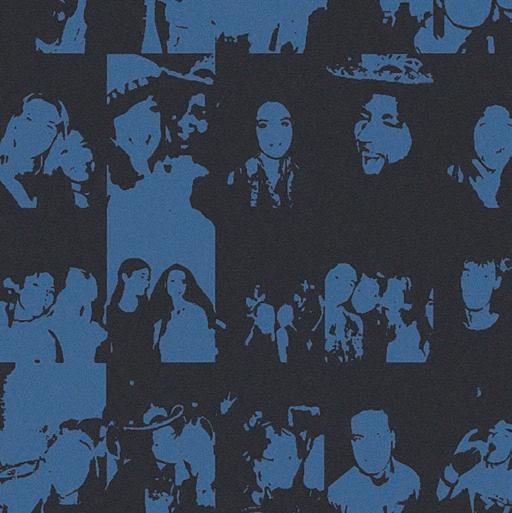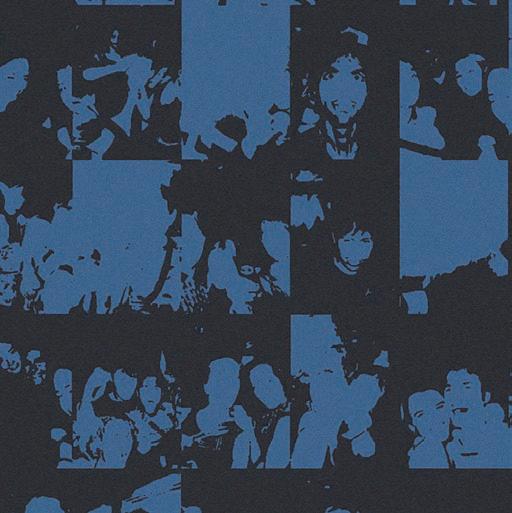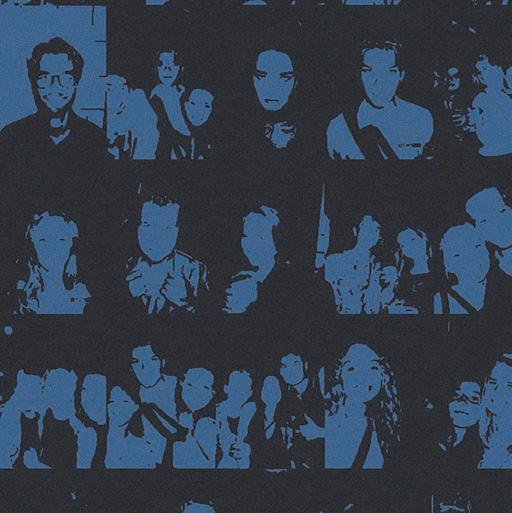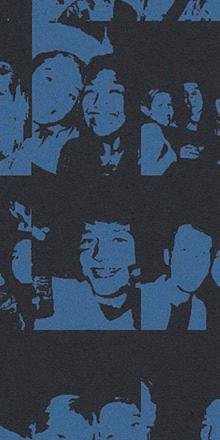









EDITOR’S
From IBP Communications
KEEPING
Plans for the upcoming semester
HUMAN
Get to know David Lincoln
PROFESSOR’S











EDITOR’S
From IBP Communications
KEEPING
Plans for the upcoming semester
HUMAN
Get to know David Lincoln
PROFESSOR’S
As we say goodbye to 2023, we say goodbye to some wonderful memories, and celebrate new friendships made. As we look ahead for 2024, we embrace a new semester filled with new challenges and new opportunities. And while I am sure this last semester has been equally as rough for the first years as it has been for the second years, IBP Union has made sure to fit in lots of social and academic highlights for us to look back on. We greeted our new first year students with an amazing intro week, hosted an exciting beer pong tournament and once again, we gathered around the long tables at Absalon for a warm-hearted meal. Meanwhile, our third year students got to explore the world on exchange, gain experience from internships and build competences through their chosen electives here at CBS. And we at Communications have been waiting patiently to share the stories of their wonderful adventures.
This 10th edition of the IBP Magazine marks a milestone for IBP Communications, and I am grateful that the honour of planning and editing this particular magazine falls to me. My wish for this edition was to highlight the achievements and experiences of as many IBP’ers as possible, and to show that nothing is set in stone. This degree gives us so many different and interesting possibilities for our future careers, and my deepest hope is that each of you takes the time to reflect on these different opportunities before taking what might be the most obvious road laid out before us. After all, not all of us are meant to become consultants. And with the passion pouring out from our new members, we have been overflooded with ideas, and we’ve got content to hopefully inspire and entertain you.
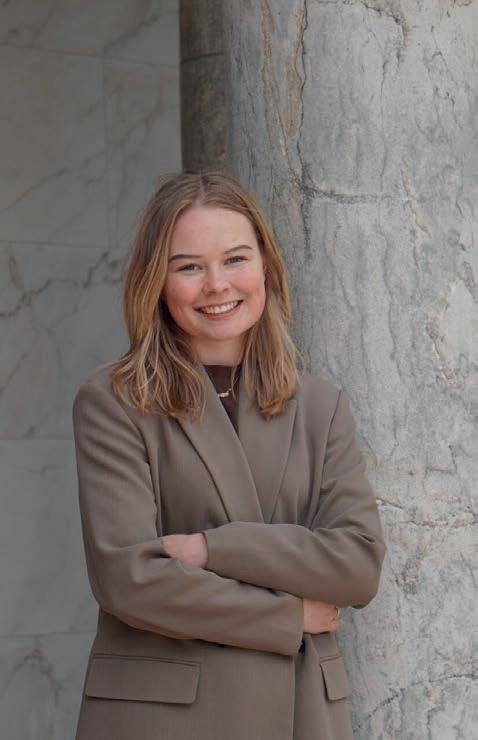
Finally, as we say goodbye to 2023 and welcome 2024, it is also time for the board of the IBP Union to step down. This sadly means that this will be my last magazine as editor-in-chief. After a year of complete and utter fun, the entire board would like to thank all of you for the trust you have shown us this last year and for this unique opportunity to help shape this great community. See you all soon and enjoy the upcoming semester!
Best wishes,
Eline Kiirdal Ludvigsen Head of IBP Communications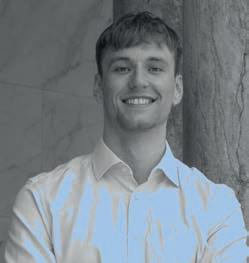











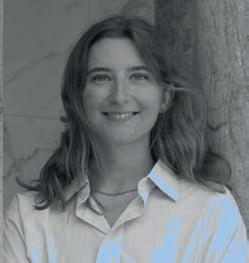






Exams are finally over, which means that we can look back at some of the more joyful experiences from this semester. One of the main goals of IBP Union for this semester was to welcome all the new bachelor and master students in the best way we knew how: Present them with constant amazing opportunities for social and academic activities. I believe we achieved this, and I am proud of the many different events we managed to pack into this semester. From Tour de Chambre and the movie night to the AI Workshop and the Bain & Company visit, we tried to make many different events that could be relevant for all IBP students, and I hope that you enjoyed the events you found interesting. I also hope that the more experienced IBP’ers found enjoyment in some of the new events we tried out this semester, as well as some of the new things we tried out on our social media platforms. We also welcomed many new members to IBP Union this semester. I believe I can speak for all board members when I say that we are beyond impressed and delighted with our new members of all three branches. With their impressive commitment and their creative ideas, our new members make me excited for the future of IBP Union. They also make me certain that I will be handing the president duties over to someone who is ready to continue the advancement of the IBP experience. Lastly, I just want to say thank you for the letting me be the President of the student organization for the best program, with the best people, on CBS! See you at the General Assembly.
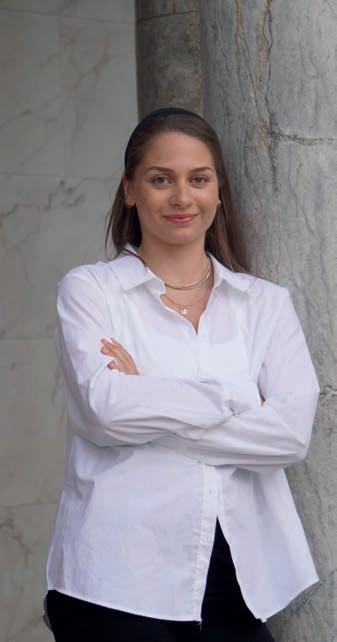


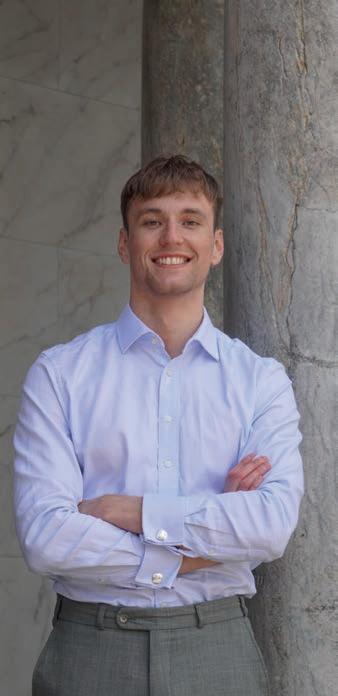
At the beginning of this past semester, we welcomed a new fun and engaged group of IBP’ers. I cannot wait for the returning 3rd years to meet them and to welcome them home from their exchange and internshipsluckily, we have had the pleasure of the 3rd years doing electives here at home. Likewise, it’s been wonderful to see an increasing number of master’s students attending events, and I hope this trend continues in the coming semester. Reflecting on this semester, we, as a board, have strived to think outside the box, not only in terms of events but also in finding ways to improve the union internally for our members. Our dinner for all current and new members of the three branches was the board’s way of thanking the current members for their hard work, welcoming the newcomers to the team, and fostering connections across branches to create a united union - I hope it marks the beginning of a new tradition. In regard to partnerships, it has been a lot of maintaining current as well as seeking new possibilities. Laurits, my president-in-crime, has truly been amazing and fully lived up to his role. With a lot going on sometimes, it has been nice to have the opportunity to occasionally take a breather and see him manage everything with brilliance <3 I look forward to the general assembly, where I am hoping to see a lot of people running for all the positions. I have enjoyed my time as Vice President, despite the sometimes-hard work, I can only recommend it!
Looking back at the past semester, I am thankful for the collective efforts of IBP Social, the board, and the whole of the IBP Union. We have hosted a series of events, including the BBQ at Nørrebroparken, Tour de Chambre, the Christmas dinner, and many more! The dedication of the IBP Social group has been the backbone of these enjoyable events, as well as your participation, which has been immensely appreciated and incredible. As we look forward to the spring semester, exciting events like the amazing IBP Gala and our own camp at Roskilde Festival await us. With a new Head of Social incoming, I am filled with anticipation for the fresh perspectives they will bring. My time in this role has been deeply rewarding, a testament to our teamwork and the support of the IBP community. For those with a passion for bringing people together and creating memorable events, I wholeheartedly encourage you to consider running for Head of Social at the next General Assembly! A heartfelt thanks to everyone for your participation. I cannot wait for this spring’s events, and I hope to see you there!



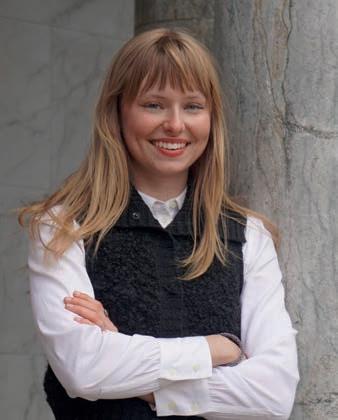
This year, IBP Academic welcomed six new members - both from first year bachelor and masters. They are a fun, motivated group of people, who are sure to create some awesome events in 2024. So far, we kicked off the 2023/2024 academic year with two incredible networking and learning opportunities. The first was a company visit with Bain & Co. set up by Emil Danielsen. The second was a lecture by Assistant Professor Christian Hendriksen on AI, its place in academics and its future. Aside from the merit requirement for participation with Bain - all feedback has been positive. So we look upon the new year with excitement and optimism for what’s to come.
Yet another year gone by at IBP union with a wide range of events and initiatives. In the last issue, I highlighted our union’s future potential underpinned by an increasingly solid financial foundation. This trend has not only continued but also manifested in the quality and scale of our events, enhancing the overall health of our union. But that doesn’t mean we now sit back and watch. The board and I are actively engaged in reinforcing this foundation, with a focus on securing meaningful partnerships and agreements. The time is also approaching for a transition, with a new board bringing fresh ideas and renewed commitment. As the treasurer, I am particularly excited to see who will take over this exciting and enriching position at the General Assembly in the near future.

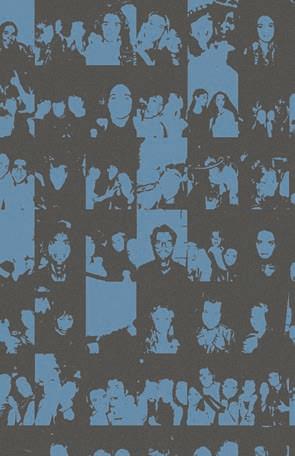
Meet this year’s human of the issue, David Aleksander Lincoln. He grew up in a small Danish town called Hvalsø, but moved to Copenhagen after he finished high school. While David has been attending the IBP programme at CBS, he has also worked on music production on the side, most notably producing the hit song “Uden Dig” from Ukendt Kunstner’s new album. This is why David been chosen as the human of this issue. He was so kind as to sit down with me and take me through how he started music production, and how it led to him producing for major Danish artists.
BY DAVID THOMASSEN

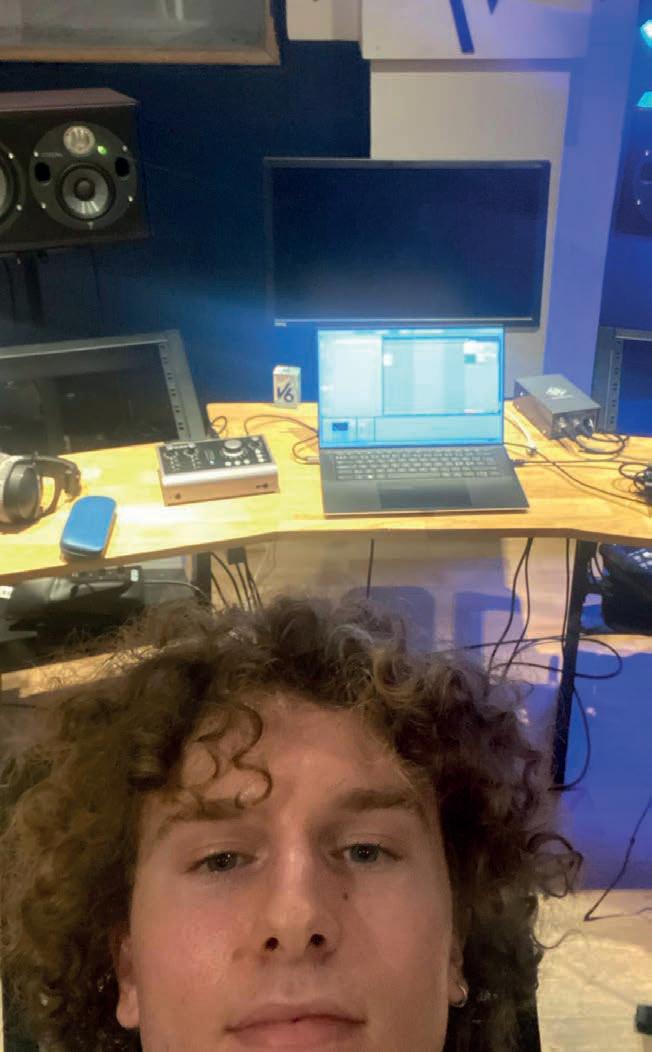

COULD YOU EXPLAIN HOW YOU STARTED PRODUCING MUSIC?
I started music in general very late, right as I completed 9th grade at the age of 16. One of my friends had downloaded FL studio, which is kind of a shitty music production software, I also downloaded it and ended up enjoying it. I then started slowly teaching myself piano and I also used my sister’s old guitar which she had left behind, to start teaching myself guitar, and kept improving at production as well. I used Instagram to connect with Jens Ole which is one half of Ukendt Kunstner while I was in high school. I sent him some stuff and he used some of it which was surprised me. Jens Ole was living in LA at the time working on his own music, but I met up with his manager in Amager which was also quite strange as I was just a bored kid going through high school.
THIS WAS A FEW YEARS AGO, DID YOU AND JENS OLE STAY IN TOUCH THROUGHOUT THE YEARS?
Yes, I continued the relationship with Jens Ole throughout the years. At one point during high school, I helped him produce the solo album for Thor Farlov, one half of the Danish group Citybois, which had split up. The album was not very successful commercially, but it was a fun experience none the less. Later I had started working in Copenhagen but was still making music in my free time. Every now and then Jens Ole would call me in and be like: let’s make some music.
FOLLOWING THE TWO OF YOU HAVING COLLABORATED OVER A FEW YEARS, HOW DID IT CULMINATE IN YOU PRODUCING FOR UKENDT KUNSTNER’S NEW ALBUM?
It’s actually a funny story, two years ago me and a few friends were in Tivoli watching 50 Cent. A few hours before the concert starts, we see a group of guys come out of a bar, and Jens Ole is one of them, so we say hi to each other. Then after the concert he calls me up and starts talking about the comeback album that they are making and asks me if I wanted to be a part of it, which I agree to. About a year after that conversation, we met in the studio for a week straight and did beats and shit. The beat on Uden Dig being one of the ones we made. Hans Phillip, the other guy from Ukendt Kunstner, was in LA at the time, and Jens Ole told me that he had started writing to it. I did not get very excited, because artists are always like: yeah, I started writing to this shit, but then nothing ever comes of it. In this case the song did make it on the album, which was very cool.
WAS IT FUN FOR YOU SEEING THAT THE SONG YOU PRODUCED BECAME THE MOST SUCCESSFUL ON THE ALBUM?
Yeah, it was, also because Jens Ole texted me a week before the album came out and sent me the song, and I was actually kind of disappointed in it hahah, but it grew on me. It is also way easier for me to get into contact with other artists now, having a track record. I do however feel like I need to cut a bit down on producing music, as I am just starting a new job at Lundbeck, a pharmaceutical company, and I also kind of need a break. It’s a strange sort of lifestyle, it is not very structured, making music, and also having to collaborate with artists that can be a bit funky sometimes.



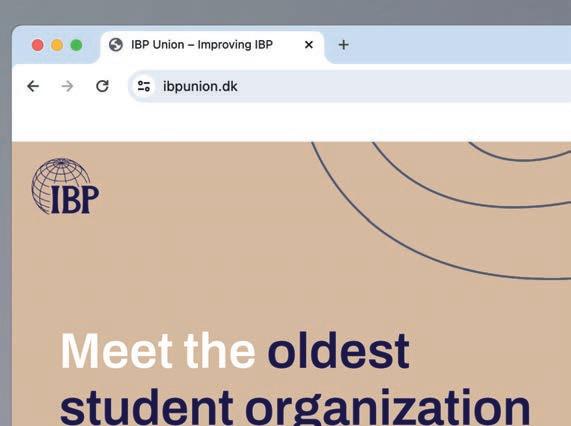

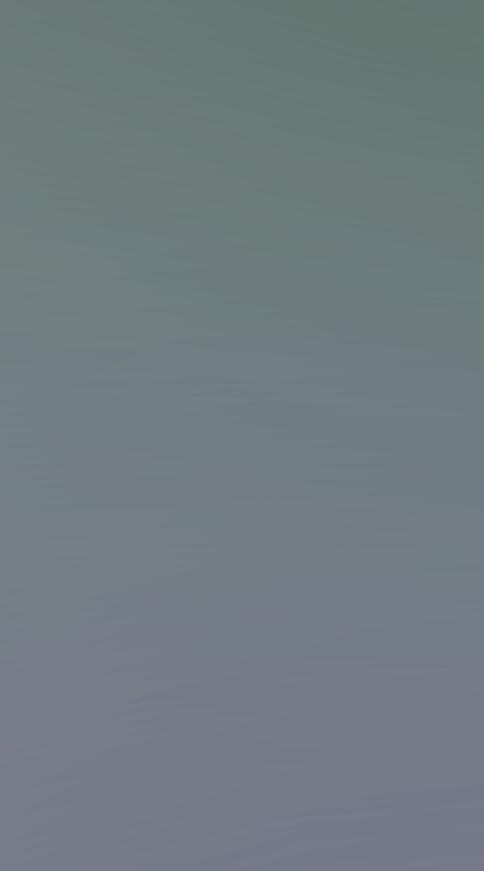




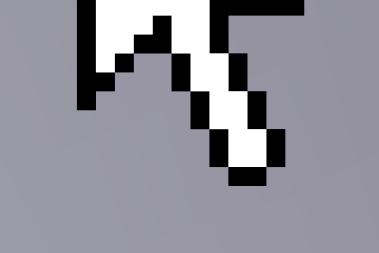



Dear IBPers,
As we enter 2024 the new Study Board has been composed and I continue as Chair and Programme Director for the BSc. and MSc. IBP degrees. 2024 will be a year of change for CBS, with expected reforms to the educational landscape. I sat on the three taskforces last year as one of the professors invited to discuss the reforms. These taskforces were on the ‘Principles’, ‘Governance’, and ‘Landscape’ characteristics at CBS and what makes sense. While nobody expects Senior Management to follow the output from the task forces line-by-line—of course they also have their own ideas on what is needed for CBS education—you should know that IBP was robustly represented. We will know more detail this Spring on concrete reform plans.
In programme news, the courses ‘Quantitative Methods for Business and Social Science’ (7.5 ECTS) and ‘Advanced Topics in Quantitative Methods (7.5 ECTS) in the BSc IBP will be merged to form ‘Research Design and Quantitative Methods’ (15 ECTS). This reform is needed to provide steadier progression for the students, allowing you to receive more feedback as you acquire these skills and have less pressure on the ‘big exam’ at the end of the course. Benjamin Egerod and Florian Hollenbach are completely onboard with this change and the change will enhance the student experience and makes a lot of sense in terms of pedagogy and wellbeing.
The IBP faculty will soon meet to discuss the role of AI in our teaching. Current policy at CBS is that you should not be using Chat GPT etc. for exams and essays. A counterpoint is that these AI tools are not only for ‘cheating’ but can be productively used to help structure and elaborate arguments. They are certainly super helpful to trouble-shooting R scripts and the like. And we must learn to embrace AI as supportive for our studies, using it to enhance our critical thinking rather than finding an easy path to generating content.
Of course, it is critical thinking that is the cornerstone of your training in IBP. We know from our Advisory Board, the alumni network, and those who employ you, that IBP has an excellent reputation in educating students who have great breadth and flexibility in their thinking while also a strong capacity for analytical deep dives. The IBP ‘brand’ is well known and highly respected. To continue that you need not only to study but also to take care of each other, make friends, build networks. Share your frustrations and successes with each other, knowing that you are not competing against each other—there’s no bell curve grading in IBP—but collaborating with each other on how to study, how to gain both intellectual breadth and analytical depth. It’s a pleasure to continue as your Programme Director this year, and if you have any questions, please write to me: lse.ioa@cbs.dk
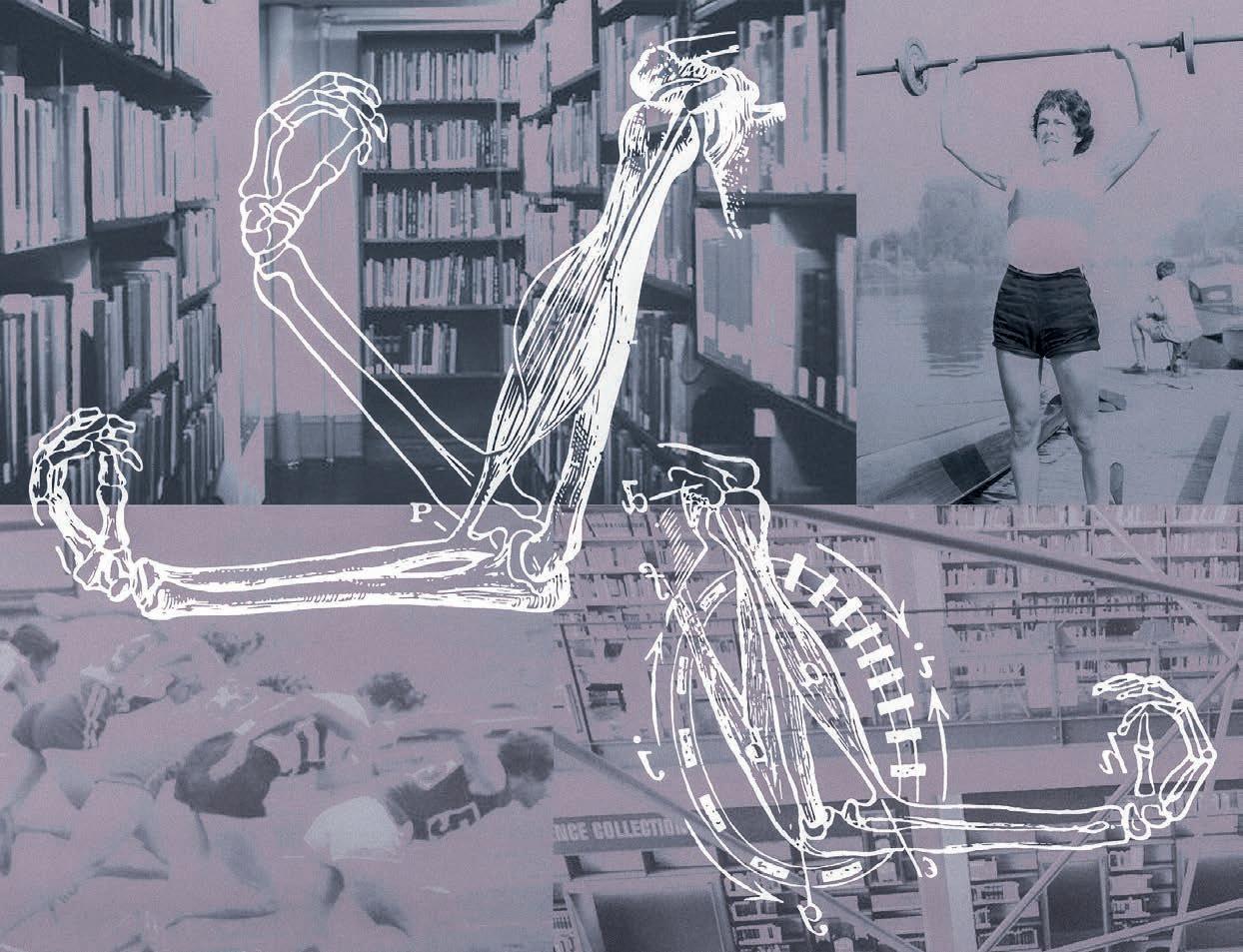
In the vibrant halls of academia, the pursuit of knowledge is often found by sedentary work hidden away in lecture halls or dark corners of the library. In these moments, sports and activity might seem like another planet. But wait, what if you could combine brainpower and physical power? Several student societies focus on sports, and we have had the honor of interviewing three wonderful IBP’ers who have all found great joy in an active lifestyle where academia, community, and new friends go hand in hand. As students, we often find ourselves navigating the labyrinthine demands of coursework, deadlines, and the ever-persistent quest for personal development. In the seek for intellectual greatness, the reality of dedicating time to sports might appear as a luxury - perhaps even a
distraction. But what if lacing up those running shoes or grabbing that racket is not just a break from academia but a catalyst for academic excellence? Much research has shown a symbiotic relationship between physical exertion and cognitive prowess. The science is clear: when we engage in sports, there’s more happening than just muscle flexing and sweat dripping. Exercise actually helps create new brain cells, especially in the part of your brain called the hippocampus, which is like the VIP area for learning and remembering stuff. But that is not all; exercise enhances mood and sleep, reduces stress and anxiety, and improves overall brain function. So, hopefully, it is clear that moving your body is very important for your physical and mental health.
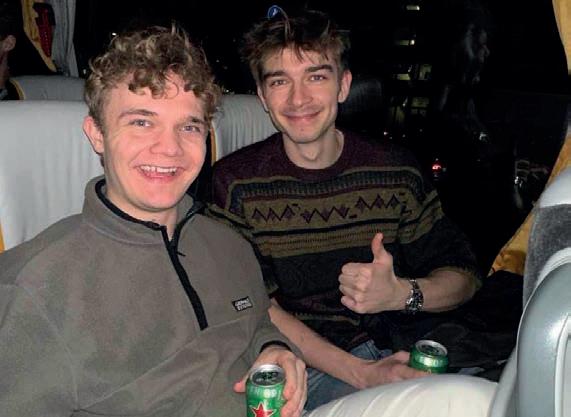
Victor Lenk-Hansen, a fellow IBP’er, has, together with his good friend Valdemar La Cour, started a student organization to make sure they kept active while also enjoying a shared hobby where they could make new friendships.
Initially, I was eager to find some people who shared my interest in climbing, and I discovered that CBS didn’t have an organization with that purpose. It wasn’t until I was approached by co-founder Valdemar la Cour, who had gone with the same thoughts that we decided we should try to make it ourselves. We wanted the organization to function as a means of introducing new people to the sport of climbing but just as much a place for people to socialize across programs through climbing together. We now organize weekly climbing meetups starting in February and have some events coming up throughout the semester.
As the organization remains in its early stages, our biggest challenges at the moment lie in making ourselves known to the students at CBS and figuring out the optimal way to run an organization effectively. Luckily, CBS Students have been very helpful in both these processes and allocated a lot of resources to assist new organizations in properly establishing themselves. The best memory so far has been from the first time we hosted a climbing meetup. Valdemar and I were worried that no one would show up, but we were delightfully surprised by the number of people who showed interest in our idea. I was especially happy to see so many people who had never tried climbing before having a fun time and progressing throughout the session.



WHAT IS YOUR ROLE IN THE ORGANIZATION?
My role is, together with Valdemar, to set the general goals of the organization, manage events, and seek potential funding/ partnerships with other organizations and climbing gyms. At the moment, I’m planning a camping trip to Bornholm later this semester for people to try out proper outdoor sports climbing.
WHY DO YOU THINK THAT IT IS IMPORTANT TO BE A PART OF AN ACTIVE COMMUNITY?
I’ve found it very gratifying to work with people who share the goal of wanting the organization to succeed. I probably wouldn’t have known many of the people I’ve met through CBS climbing as well if it hadn’t been for climbing and working closely together. It’s also very interesting and challenging to try to form a functioning organization.
WHAT IS ONE GOOD ADVICE THAT YOU WOULD GIVE OTHER IBP’ERS, WHO ARE MAYBE HESITATING OR AFRAID TO JOIN A STUDENT ORGANIZATION?
I would recommend reaching out to your peers or the organization you may be considering joining. Most likely, the things you are afraid of or that make you hesitate will be easily accommodated. The benefits of being part of a community are numerous, and most organizations will welcome any degree of participation with open arms. I’d like to take the opportunity to invite everyone to follow CBS Climbing’s Instagram @cbsclimbing and to come to our beginner climbing event on February 28th from 9am to 12pm at Bison Boulders. It costs 50kr and is a great opportunity if you want to try climbing or want a fun time socializing with your CBS peers.
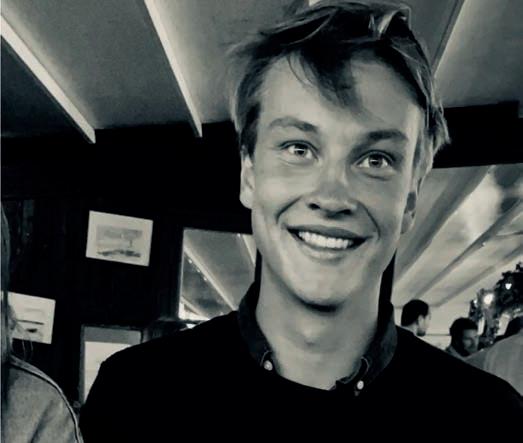


However, you do not have to create your own club to be active. Many CBS clubs are looking for new members; Kasper Berggren, also fellow IBP’er, joined Mercury in 2023 and has not looked back since.
WHY DID YOU DECIDE TO JOIN CBS MERCURY?
After moving to CPH, I was looking for a place to exercise, and through that process, I started hearing about CBS mercury. It seemed to be a very nice and convenient way of working out, and after finding out that it is located in Solbjerg Plads, I just felt that it was perfect. I spend a lot of time at university sitting down in front of the computer (like we all do, I guess). This day-today activity was very different from my previous life before I started studying, so it is important to be active, and it also helps to relieve some energy. CBS mercury also comes with a lot of benefits, such as society points, and sometimes we also eat cookies and pizza together.
WHAT IS YOUR ROLE IN THE ORGANIZATION, AND HOW DID YOU BECOME INVOLVED?
I volunteer as a coach in the gym where I regularly hold scheduled workouts. I also handle some minor logistics in the gym. I have done similar things before, so it was a natural process. Even though this is the “formal” task, there are still many other fun things to it, like planning parties/events or meeting people you wouldn’t meet otherwise.
Being a part of Mercury is important for me because it primarily helps me to get good structure and healthy habits for my study weeks. After a long day of reading, it feels nice to get a solid workout in.

WHAT IS ONE GOOD PIECE OF ADVICE THAT YOU WOULD GIVE OTHER IBPS WHO MAY BE HESITATING OR AFRAID TO JOIN A STUDENT ORGANIZATION?
CBS Mercury is organized for everyone. ALL the workouts can be adjusted to every level, so it does not matter if you are a beginner or a pro. The future is also looking promising for Mercury. If any fellow students are interested in not only exercising, there will also be many fine organization spots free to sign up on to earn your points and have a pleasant time.



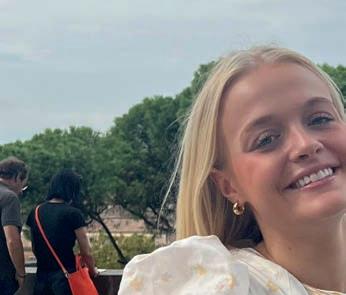
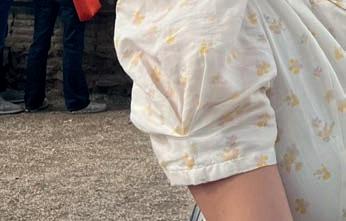
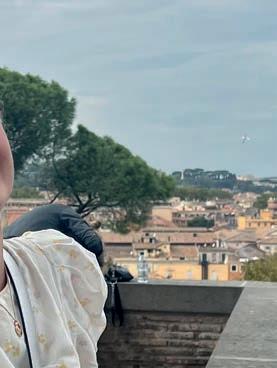
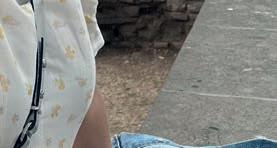
If you are more into speed, Elina got the right club for you. Elina Løken Dahl, fellow IBP’er, knows that to keep your mental health at the top, it is important to prioritize any activity.
I joined CBS Running to pursue my favorite activity and make new friends. When I started at CBS, I realized that the studies would consume a lot of time and energy and limit leisure. The Running Club was a great place to combine both social life and physical activity. It did not require any specific qualifications or preparations, and I only had to dedicate one hour every Monday to fulfill the needs. It was also a great place to meet students from other programs and make new friends. After only one semester in the organization, I have gotten to know many people from all around the world.
I am a team leader and relationship manager. As a team leader, I lead a group of beginners on a 6-kilometer run each Monday. My work consists of planning different routes and guiding the runners through them. I am also the relationship manager responsible for connecting the organization with companies and making partnerships. I do the job by calling out and e-mailing potential partners. My latest performance was organizing a morning event sponsored by Lagkagehuset. We offered fresh pastries and coffee to all our runners after a social morning run in Frederiksberg Have. My next assignment is to secure new partners and sponsors for our upcoming 5-kilometer race.

I believe that physical activity is an important part of a student’s life. Research shows that physical activity helps improve your mental health which is crucial for academic performance. Taking part in an active community also helps establish a good routine for physical activity. Participation creates expectations of regular attendance. For students who may lack the motivation to work out and take care of themselves, an innocent question from a friend asking, “Are you coming to practice today?” can make it harder for them to skip, and thus motivate them to come. So, by joining an active community, your primary responsibility is only to show up, and then the group will collectively push you through.
WHAT IS ONE GOOD ADVICE YOU WOULD GIVE OTHER IBP´ERS WHO ARE MAYBE, HESITATING OR AFRAID TO JOIN A STUDENT ORGANIZATION?
Participation in a student organization is a great way of engaging in leisure activities. Studying can be quite comprehensive and cause stress and dissatisfaction from time to time. If you join an organization, you will get an alternative platform to engage and perform in, which can provide a sense of belonging and meaning to your life. However, leisure time is precious. So, do not join a student organization just to add it to your LinkedIn profile. Instead, find an organization that embraces your hobbies or interests. Then it will not feel like an extra task in your schedule, but rather an activity where you can express yourself and connect with other students who share the same interests.
WHAT DO YOU THINK MAKES THE ORGANIZATION YOU ARE IN SPECIAL?
CBS Running is for everyone. We offer activities for all skill levels and students do not need any previous knowledge or experience to join the organization. The only thing required is a pair of running shoes and you are good to go. Additionally, CBS Running hosts running events every week, but there is no obligation to attend each time. It is up to each participant to set their agenda. They could, for example, use our Monday runs as practice for a specific race or as a workout with fellow students just for fun.
Interested in investing but unsure where to begin? Meet Endavu, the innovative startup transforming investment into an experience ”as simple as listening to music on Spotify”. Led by a team with backgrounds in Saxo Bank and McKinsey, Endavu is rewriting the rules for the next generation of investors. They’re breaking down traditional barriers, making the world of stocks and ETFs accessible to everyone. If you’re eager to navigate the financial markets with ease, whether you’re already investing or just starting out, read along to see how Endavu is paving the way. IBP Communications sat down with the Co-founder Casper Sylvest Helledi to learn more about their journey.
BY HELEN HUMMEL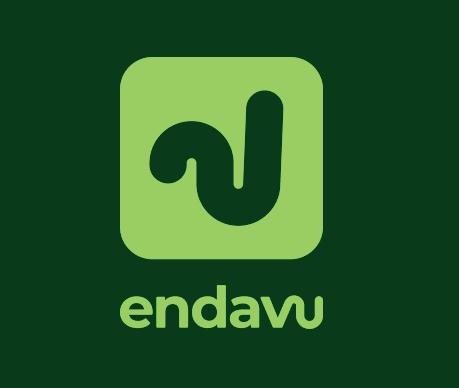
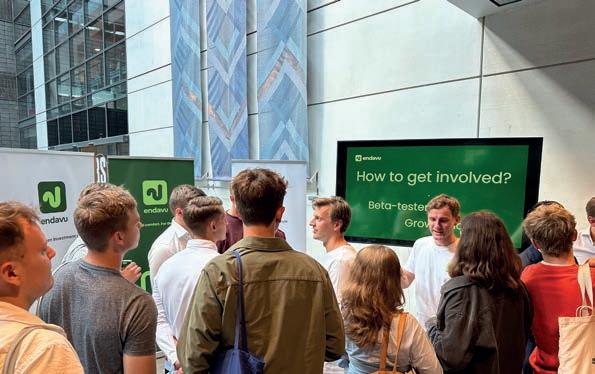

Less than 20% of people aged 18-40 are investing their savings today. Despite putting your money to work in the stock markets has historically been the most rational way to make your savings grow. So few people get started investing in their future because
1. Existing solutions are too complicated (UX stuck in the 90s)
2. They don’t know what to invest in
3. They can’t properly discuss their financials with their friends & wider community … that’s what we’re changing.
Starting investing 1000 kr per month at historical returns:
• If you start when you’re 40, you’ll have 1m by age 65 when you retire.
• Starting at age 30, you’ll have 2m
• Starting at age 20, you’ll have 5m
That’s the power of compound interest, the world’s eight wonder as Albert Einstein famously coined it.
We’re all passionate retail investors. Being annoyed with a bad experience and hefty fees, and hoping to help more people get started, we decided to do something about it. Martin and I were discussing in the spring back and forth – after all, it’s a big decision to quit your comfortable jobs (Global head of Marketing at Saxo Bank, in charge of a +140 people business division and responsible for ~550m EUR in revenues – and Engagement Manager at McKinsey & Company). But ultimately decided to go allin, as we believe you should not have any regrets in life and that we can truly make a difference here. So, first step was to secure some capital to afford a modest salary and a proper place to work from; refine the idea; and convince other people to join us on our mission. Fortunately, a lot of people buy into our mission and vision, so it was quite easy to set a top notch team, including convincing Jesper to become part of the founding team and be in charge of converting PowerPoints into an actual technical product. We gradually mocked up our ideas in Figma, and Jesper started to define our architecture and establish the infrastructure. From there, we started to build and expand the team. From a simple idea to a team of 9 today and backed by prominent investors.
AS A TEAM WITH DIVERSE BACKGROUNDS, IN WHAT WAYS HAVE YOUR INDIVIDUAL EXPERIENCES AT MCKINSEY, SAXO BANK, AND COINIFY PLAYED A PIVOTAL ROLE IN SHAPING THE UNIQUE PERSPECTIVE AND APPROACH OF YOUR STARTUP?
Complementary skills is of outmost importance in a startup. Martin & I were both from CBS, but had taken different routes in our careers. Martin obviously has deep industry expertise – from financial ecosystem to regulatory – as well as understanding users and their behavior from his time in digital sales and marketing at Saxo. Growing up at McKinsey, you’re really just an analytical problem solver. So for me, it’s mostly about thinking holistically, being a strong project manager and the ability to fast get an in-depth understanding of various operational challenges such as securing a financial license and building all the operational processes and procedures necessary. With that being said, we’re both obsessive with the end-user experience – which all founders should be. Jesper is born and raised in Crypto payments, and his true passion lies in building robust, secure and scalable infrastructure. So we’re extremely comfortable with him leading everything tech-related. Famous quote, “I can build anything”.
COULD YOU SHARE SOME CHALLENGES YOU’VE FACED DURING YOUR STARTUP JOURNEY AND HOW YOU’VE OVERCOME THEM?
Building a start-up like ours requires deep industry experience. It’s impossible to do straight out of university. With that being said, one should also be prepared for significant curveballs and unexpected things. Securing our license from the Danish Financial Supervisory Authority (Finanstilsynet) was obviously a major challenge. While they welcome innovation, it’s very hard as a newcomer to get licensed. The requirements are extensive – processes, procedures, set-up, ensuring customer funds are always protected, anti-money laundering regulation etc. – but also the fact that you’re a start-up is a challenge in itself. A famous quote from one of our meetings with the FSA from the Head of Section, “Burn rate, run way, deficit all scream red warnings to me – I grew up in a bank where you had billions in your bank account”. Another example is that we wanted our users to be able to transfer funds to their account inside our app, i.e., not having to open their mobile bank app. It was planned to go live within a few
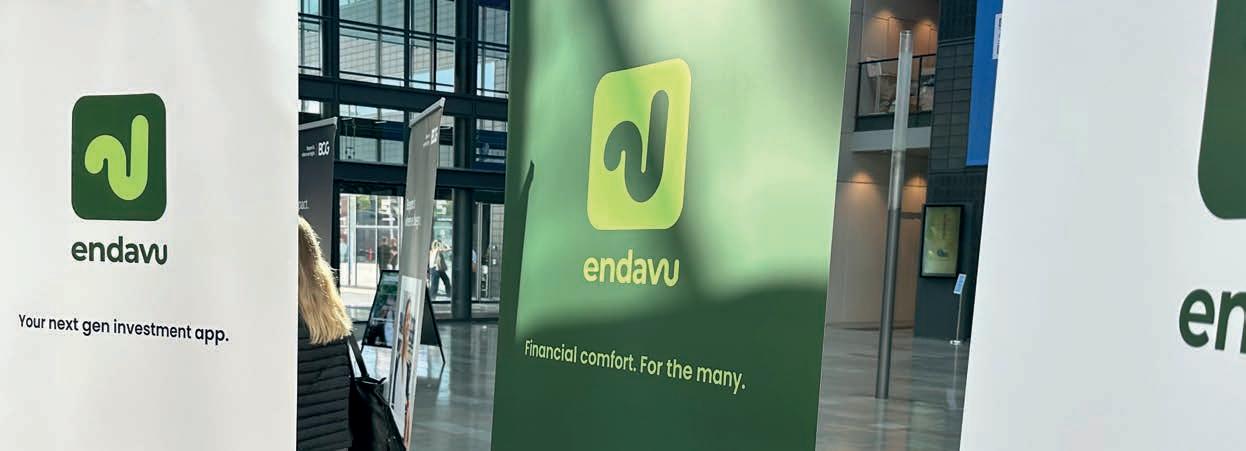
weeks, but all of a sudden the process was killed by our partners’ internal processes. In the end, we then needed to start all over and find another partner. The key learning is that, as a founder, you need to embrace curveballs and always have a Plan B and C. Execution is everything.
FOR US IBP STUDENTS WHO MIGHT BE VENTURING INTO THE WORLD OF INVESTING, HOW DOES YOUR PLATFORM AIM TO SIMPLIFY THE PROCESS AND SUPPORT US IN GETTING STARTED ON OUR INVESTMENT JOURNEY?
Being extremely passionate about this mission, here is what we have managed to build in less than a year …..and why we hope you will love Endavu.
• Broadest product range among most with access to +25 markets, +50k stocks & ETFs
• First Nordic player to introduce fractional stocks for easy diversification
• Discuss & invest with your friends and wider community (coming soon!)
• Never miss out: Engaging market & stock specific news
• Go treasure hunting: +150 thematic Collections of stocks
• Monthly savings plan
… and much more, not to forget mentioning completely new approach to the user experience.
And for those who want to know a little more before starting investing, we have a series of educational articles explaining the 101’s of investing. With that being said: the best way to get started is by simply transferring 1000 kr and investing them. Then you will gradually get a natural interest for it and become more active over time
WHAT ADVICE DO YOU HAVE FOR IBP STUDENTS WHO ARE ASPIRING ENTREPRENEURS, ESPECIALLY THOSE INTERESTED IN THE FINTECH SPACE?
Get a job at a start-up. You will learn so much more than getting a job at a large corporate. Because you will get much, much more responsibility, and be exposed to so many different types of tasks. And you can really grow in
your role. That’s the best you can do to prepare yourself during your studies. Copenhagen FinTech Lab at Islands Brygge is not only a co-working place for fintech entrepreneurs, but the meeting point of our community and the biggest center of Nordic Fintech. It’s a great place to start, and if you decide to build your own company one day, they have various incubation programs free of charge to help you mature your idea and business.
LOOKING AHEAD, WHAT OVERARCHING VISION GUIDES YOUR ASPIRATIONS, AND HOW DO YOU ANTICIPATE YOUR PLATFORM MAKING A MEANINGFUL IMPACT IN ITS SPHERE?
We’re not just another app —we’re building a transformative experience designed to make investing refreshingly simple. We’re all about inspiring you to own your financial future, keep you engaged and in control of your financial journey. But here’s the thing — we’re stronger together, and at Endavu, we understand the power of community. That’s why we’re more than just a service; we’re a unity where success is achieved together. We aim to connect investors from all walks of life, and our commitment is to support you in making savvy investment choices. After all, every investment isn’t just a transaction, but a steppingstone toward fulfilling dreams. That’s our vision – help people towards fulfilling their financial dreams.
IS THERE ANYTHING ELSE YOU’D LIKE TO SHARE ABOUT YOUR STARTUP OR THE UPCOMING LAUNCH OF THE INVESTMENT PLATFORM?
We’re in “invite only” mode (available in Danish App Store only currently). So when you download our app, you can only sign up to our waitlist. We’re letting in users gradually, securing feedback along the way and ensuring everything scales like it should. However, if you already have a friend who’s in, they can share an invite for you to skip the waitlist. Alternatively – people are always welcome to reach out to us (e.g., LinkedIN) and we can share an invite code.

ON THE NEXT PAGE...
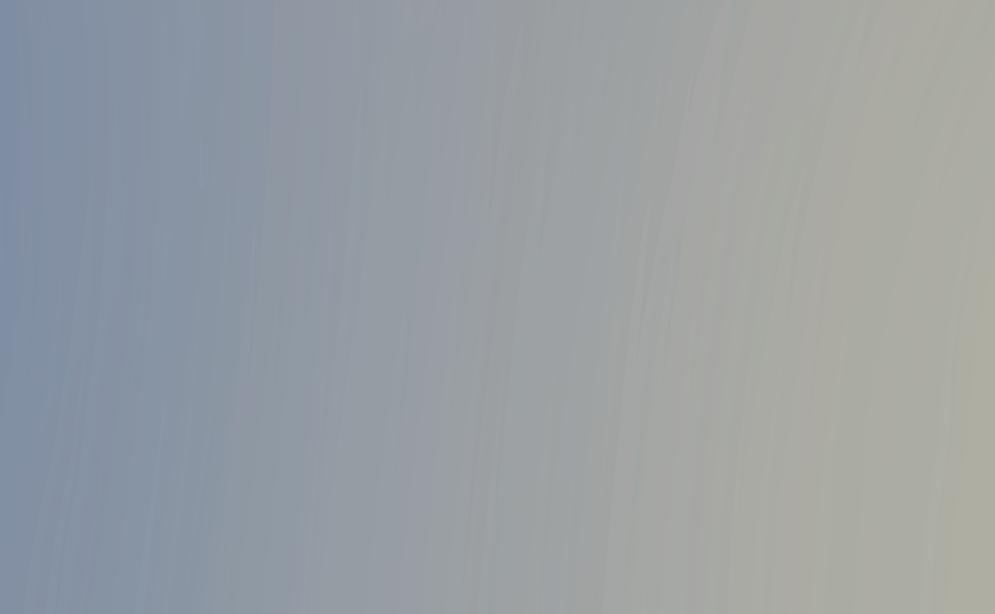


 BY AGNES WEBER CORTZEN
BY AGNES WEBER CORTZEN
WHAT? Exchange
WHERE? Emory University Atlanta, Georgia



WHY DID YOU CHOOSE TO DO AN EXCHANGE YEAR IN AT EMORY UNIVERSITY?
I honestly didn’t know much about the city besides a little of their music scene but I ended up choosing it because I wanted to go somewhere else than Europe, was curious about the deep south, and because I liked the climate!
HOW WAS THE APPLICATION PROCEDURE?
Going to the US on exchange is a quite tedious process because the university as well as the American immigration office require a lot of documentation. I had to send the uni bank statements and go to the American Embassy. For me, it helped to make a timeline of everything I had to do and then just progress gradually.
WHAT EXPECTATIONS DID YOU HAVE GOING INTO THIS SEMESTER ABROAD?
I knew that I would have a blast no matter where I went but I was actually quite skeptical about American college culture.
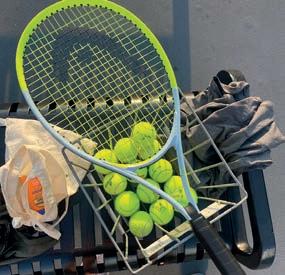
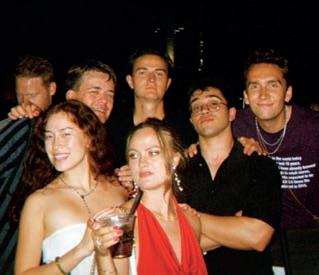
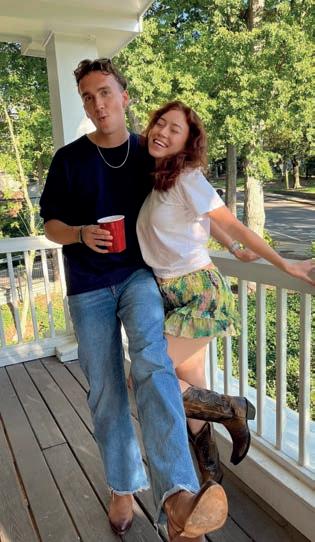
WHAT SURPRISED YOU ABOUT YOUR EXCHANGE SEMESTER?
Well, I thought I would make more American friends but my friend group over there primarily consisted of Europeans. I met some amazing people and traveled through the region. The school itself was way more like a Danish high school than a Danish university, as the teaching was very hands-on and you participated a lot in the classroom.
WHAT ADVICE DO YOU HAVE FOR IBP STUDENTS CONSIDERING A SEMESTER ABROAD?
Go for it, it’s so much fun! I applied to a bunch of different countries as I had a hard time choosing a destination and I didn’t end up with my first priority but in the end, I was so happy that I ended up at Emory University.
WHERE? The Trade Council at the Danish Embassy in Dhaka, Bangladesh
I chose this internship because I have always been interested in the diplomatic world, and the internship was a great opportunity to get insight into this type of career.
The application procedure was very much like a normal job application. Every mission posts their own internship positions, and you apply for the specific role.
I was in an unusual position, in that, I had been here as a tourist the previous year. So I had learned quite a bit about the country, but from a tourist perspective. Going into the internship I mostly expected to learn a lot about working at an embassy. I hoped to get professional experience with international trade and learn about Bangladesh, especially, its market, political position, diplomatic relations, and so on. Socially, I really didn’t expect much to be honest. It’s hard to picture what life would be like in a country that is so far from your own. Although I had been a tourist here before, I had no idea what the social scene for an intern would look like, and if there were even any activities or sports, I could be a part of. It’s been such a pleasant surprise how many things there are to do, and I’ve really enjoyed my time here.
Socially, I’ve been surprised at how good a life in Dhaka I have had! People have been great; everyone is very open, and the social environment is so inclusive here. Both among the expats and the locals who have really taken us in. Also, Bangladesh surprised me! I had no idea about the huge economic development of the country. There’s a reason why it is considered the miracle among developing countries. Lastly, working at the embassy. It is just a really cool world. I didn’t think I wanted a career in the foreign service or even abroad, but I am definitely open to it now.
Do it! The experience you get is so valuable. Really consider going somewhere more unknown, especially a smaller embassy or company, you will get a lot of responsibilities and become an integrated part of the team. I think you get many of the same experiences as you get from going on exchange with lots of culture, travelling, socializing. As someone from Denmark, Bangladesh is very cheap. While I have been here, I have been more than able to live on a student budget, to be honest, I have been able to live a great life as an expat here. Oh, yes, the internship paper. Please just keep it in mind before starting because it is quite extensive. It has been challenging for me to manage it while doing a fulltime internship and living life in Dhaka. However, the embassy has been very supportive of my project. Throughout my time here, I have been able to gather a lot of meaningful knowledge through networking, interviews, and conversations with my colleagues.
Internship WHERE? O ce of Denmark’s Tech Ambassador in Silicon Valley
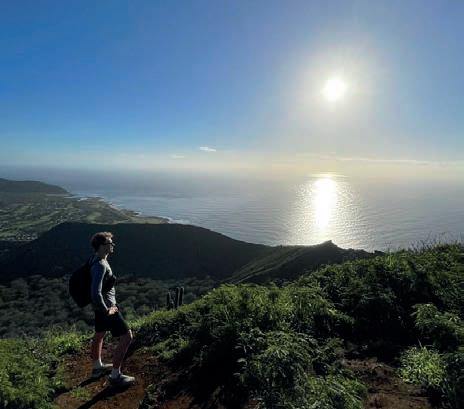
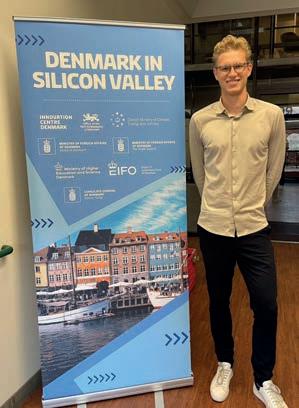
I pursued the internship to bridge my studies in IBP with practical insights from the technological forefront of Silicon Valley. I was intrigued by the opportunity to understand how Denmark’s Techplomacy could contribute to the global tech landscape. The connection between business and politics in a globalized and interconnected world like the one we live in - further impacted by fast-changing technology and unstable geopolitical environments - makes the work being done by the Tech Ambassador’s team as relevant as ever. Lastly, it was the perfect opportunity to explore the combination of diplomacy and technology, witnessing how digital advancements are reshaping traditional diplomatic practices and international collaboration, across nation states, private corporations, and civil society.
The process of getting the internship was quite straightforward. I simply applied when the position was announced on LinkedIn and was able to get an interview. From there on I did my best preparing for the interview and hoped that they could see the value in me joining the team - which they luckily did. The process with CBS was also straigh forward, and these guides are quite good. I don’t have any tips per se, other than just applying as early as you can, and doing your best at an eventual interview.
On a broader scale, I was looking forward to experien-

ce the vibrant culture of Silicon Valley and its tech industry, meeting with and learning about tech companies and their work, all in a geopolitical context seen from the perspective of the Office of Denmark’s Tech Ambassador. Furthermore, being at the epicenter of technological innovation, I was looking forward to experience the unique mindset and culture that the Silicon Valley is built around. I also really wanted to experience the culture of the great universities in the area attending courses at Stanford - which I also ended up doing!
In some way - and it might sound a bit boring - I have been surprised about how much I’ve enjoyed it. I was of course hoping that it would be a great exp rience, but I could not have imagined that it would be as awesome as it has been!
Just do it! If you want to get practical experience, whilst having the opportunity to explore - in my case - a foreign country, there simply is no better way of achieving it. Be prepared to work and be prepared to write an internship report that is quite extensive, but do not let it get in the way of embracing the opportunity. I have been very happy with my decision of doing an internship - both professionally and personally. The friendships I’ve made, the people I’ve met, the places I’ve seen and experienced, in combination with working in a field that I find very interesting, has been a great privilege. My time in California has been something I wouldn’t have traded for anything else!
I was actually supposed to go on exchange at Sciences Po in Paris for my 5th semester. But in May last year, I was offered a job at the Danish Ministry of Foreign Affairs, in the Department of Multilateral Cooperation under the team for Development Banks, that I simply could not refuse. So, I decided to stay in Copenhagen and do electives instead. Besides a little winter blues during days with exceptionally bad weather, I have not regretted my decision at all and really enjoy my life in Copenhagen at the moment.
I chose three electives of 22.5 ECTS to have a more slow paced semester, and then I will take the last 7.5 ECTS during summer school. My courses were called ‘Financing the Green Transition’ (with Cornel Ban), ‘Fashion, Entrepreneurship and Business Development’ and ‘Marketing Essentials in a Perspective of Future Sustainability’.
Honestly? I did not really have any expectations going into the semester, and likewise, nothing really surprised me. I took it day by day, and other things in my life took up more of my headspace than my electives, such as my new job. I made some new friends - both my colleagues and other students at my electives - which I suppose I did not expect. But in general, it was important to me that this semester was about slowing down, prioritising myself, embracing my friends, enjoying life, trying new things, and falling even more in love with life in this city. Perhaps my biggest surprise was how little to none FOMO I had when following my friends’ adventures out in the world. Instead, I have just felt content, appreciative, as well as happy for my friends.
My favourite elective was by far ‘Financing the Green Transition’ with Cornel. It was a course that truly taught us what it takes to achieve a net zero carbon future, and more specifically, how to access funding to invest in and finance the green transition. The exam is written throughout the course, and Cornel provides feedback every week to the progress made. The final product is then supposed to simulate a self-chosen investment proposal directed at the European Investment Bank. It is a very hands on course that gives you concrete tools useful in a future career setting - something that, I at times have felt, was missing at CBS. My group and I decided to do an investment proposal for a vertical farm in Francistown, Botswana, from the Danish start-up Nordic Harvest, where we actually interviewed the CFO of the company. We had a lot of fun writing the project and I feel very proud of our final product. Hopefully, one day, a similar project to ours will become reality and help citizens in Southern Africa to combat drought-driven food insecurity caused by climate change.
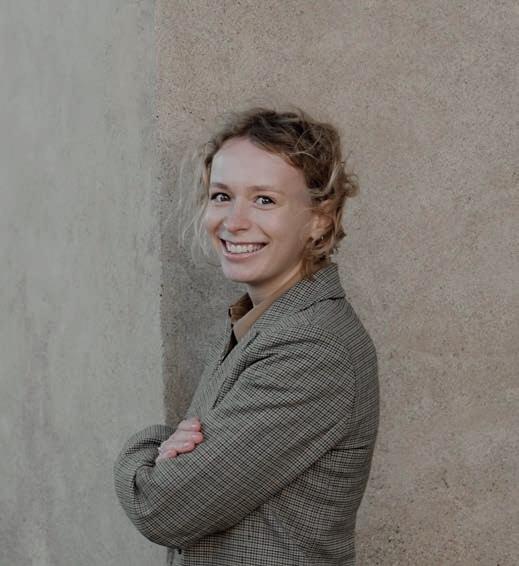
I think it’s important to point out that you should not feel pressured to go on exchange, if you do not want to - even if all of your friends from IBP happen to go. Although most IBP’ers go abroad during their 5th semester, there are perks to staying in Copenhagen and doing electives, such as job opportunities or the generally high availability of courses at CBS. On top of that, although a lot of students advocate for exchange with the argument that exchange grades do not count in your overall grade average, it should be noted that likewise you can also increase your grade average through electives at CBS. Because I attended courses that I am passionate about, and consequently good at, my grade average actually increased this semester. But of course, this should be the last reason for your 5th semester choice. It’s much more important that you choose what you want to do. If you decide to do electives, then perhaps consider courses can you help you in your future career, provide access to your dream master programme, or courses that could inspire you for your bachelor project. Because I am applying for the Climate Change Master at Copenhagen University to start this summer, I chose subjects that would help me to be admitted into that particular programme. But otherwise, I really just encourage you to try something new and have fun. In my experience, everything tends to work at the end, so you might as well have some fun.
Meet executive director of Alliance of Democracies, Jonas Parello-Plesner, and his former intern, IBP-Alumni Amalie Salomon Jankjær, as they discuss the implications of planning a democracy summit, their ambition to create the Mark Zuckerberg of democracy tech, and the importance of being optimistic about the future of democracy.
BY AGNES WEBER CORTZEN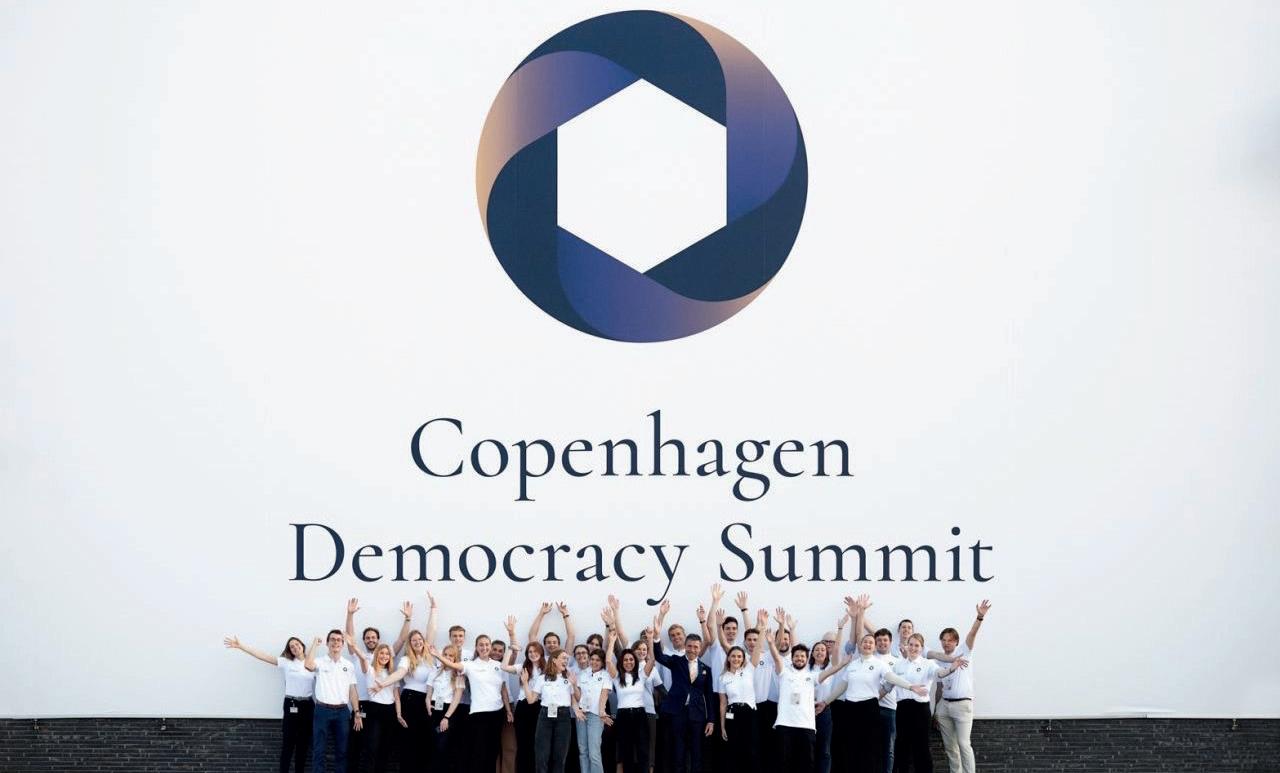
Each year, 600 people from more than 70 different countries, gather in Skuespilhuset for Copenhagen Democracy Summit. The participants include A-list political speakers, such as Joe Biden, Volodymyr Zelenskyy, and Condoleezza Rice, influential business leaders, and political activists. It is broadcast to millions of people worldwide as it places among the top democracy summits.
Impressively, it is organized by a small team of less than 10 people from the non-profit organization, Alliance of Democracies. Wanting to understand how CDS is planned, what it seeks to accomplish, and whether it is possible to remain non-political in the process, I sat down with executive director Jonas Parello Plesner, and former intern at AOD, Amalie Salomon Jankjær.

Executive Director at AOD, Jonas Parello Plesner, has a diplomatic background, working at the Danish embassy in Washington and as a minister counselor at the Ministry of Foreign Affairs. He specializes in security policy and China’s relations to EU and US. His book, China’s Strong Arm: Protecting Citizens and Assets Abroad (2015), was launched at the annual ShangriLa Dialogue in Singapore. Las year he published The Battle for Taiwan (2023), which is available in bookstores.

Jonas: Since it is a summit that aims to gather democratic forces from all over the world, we try to have a mix between high-level political speakers and democracy activists. Furthermore, we try to combine business and tech, because we think both sectors have a big responsibility to make sure the fundamental operating systems; democracy, freedom, and open markets, work. Current events must be taken into consideration as well. When the war in Ukraine started, that naturally became the focus of the summit in 2022.
Amalie: As an intern at AOD, you are very close to the core planning of CDS, because it is such a small team. Therefore, you can actually make an impact on the event and pitch in with ideas. During the summit, you are on your feet the whole time, making sure everything is running smoothly. This includes getting really close to some important political figures.You invite participants from democracies, and activists from non-democratic countries. How do you define whether a country is democratic?
Jonas: We use the Freedom House Index. Any country that has above 50 on their scale and is in the category of free, we would consider.
Alliance of Democracies is a non-profit organization, founded by Anders Fogh Rasmussen in 2017. Among other initiatives, AOD host the annual event, Copenhagen Democracy Summit. By forming an alliance of democracies, AOD is dedicated to further democracy and free markets worldwide.
Amalie is a recent IBP alumni. She was an intern at AOD in the spring of 2022, where she helped plan the Copenhagen Democracy Summit. She is currently working as an external affairs manager at RWE, since graduating from IBP last year.
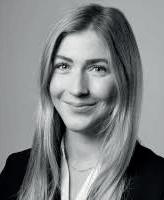
BUT MANY OF THE “FREE” COUNTRIES IN THE FREEDOM HOUSE INDEX ARE NOT CONSIDERED DEMOCRATIC BY A MAJORITY OF THE POPULATION?
Jonas: It is a trade-off of course, there are all these countries in “the middle”. The countries in the top category are the core of the Alliance of Democracies. Then, we would typically invite activists from the completely “not free” countries and invite the democratic opposition from the countries in “the middle”. If I invited somebody from Hungary, it would be the opposition to Victor Órban, or if I invited somebody from Turkey, it would be the liberal mayor of Istanbul.
YOU EXPLICITLY INVITE TAIWANESE SPEAKERS TO CDS, DESPITE THE DANISH GOVERNMENT LEADING A ONE-CHINA POLICY AND NOT RECOGNIZING TAIWAN AS A COUNTRY. WHAT ARE YOUR THOUGHTS ON THIS?
Jonas: Taiwan, which functions democratically, naturally belongs in the group of democracies that we choose to invite. They are a democracy under threat, and we think it is important to bring their voices to the summit as well. In that way, we’re the steel in the spine that the government dosen’t necessarily have.
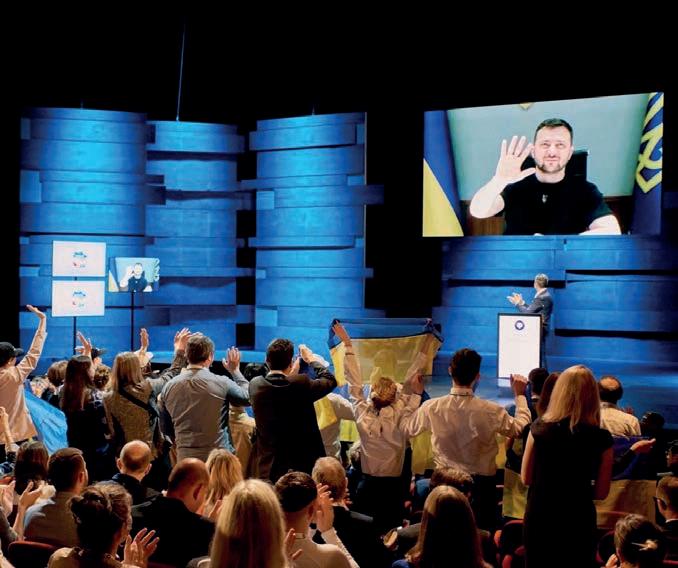
IS IT IMPORTANT FOR YOU TO SEPARATE AOD FROM THE OFFICIAL ALIGNMENTS OF THE GOVERNMENT TO REMAIN NON-POLITICAL?
Jonas: AOD is non-political in the sense that we don’t do party politics. We bring both Republicans and Democrats from the US, for instance. But it is political in the sense that we aim to promote values of democracy, freedom, and open markets. That’s what we want people to adhere to and why we invite activists and politicians working to promote those values.
HOW DO YOU INCLUDE ACTIVISTS FROM EMERGING, OR “NOT FREE” DEMOCRACIES, IN THE PROGRAMME?
Jonas: For our Democracy Tech Entrepreneur Fellowship programme, we invite people in tech from an emerging democracy, that has an idea for the innovation of their own or global democracies. We get them mentorship classes and then they pitch at the Copenhagen democracy summit.
Amalie: As an intern, you get really close to these entrepreneurs. You have a lot of online sessions, and they are flown to Copenhagen to be part of the summit. I helped plan a tour for them in Copenhagen and we had meetings before the summit Jonas: The ambition is to create the Mark Zuckerberg of democracy tech.

WHAT OTHER WORK DO YOU DO TO ADVANCE THE RELATIONSHIP BETWEEN DEMOCRACY AND TECHNOLOGY?
Jonas: In 2016, Joe Biden wrote an article on Russia meddling in the US presidential election, suggesting there should be a commission in the US focused on digital election fraud. Anders Fogh (founder of AOD) then called Biden and suggested it should be a transatlantic commission. With this commission, we’ve made initiatives before and during elections. This includes an election pledge, which candidates and members of parliament can sign up for, consisting of 5 principles of how to behave decently in cyberspace with your campaign. An example is not to use deep-fakes or altered videos of candidates during campaigning.
Amalie: Was it this year or last year that you showcased a deepfake with Donald Trump? Jonas: That’s right - this was a couple of years ago. Donald Trump called in on facetime during CDS, as if he was going to give a speech. He was complaining and said a lot of crazy things, while a moderator asked questions
Amalie: It worked very well to showcase how realistic those deepfakes can be.
Jonas: This was even some years back. Now it is even more of a problem, as you see it in Gaza for instance, with fake photos.
THAT LEADS ME TO ASK IF ARE YOU GOING TO INCORPORATE THE ISRAEL-HAMAS CONFLICT IN THE 2024 CDS?
Jonas: Good question, I don’t know yet. We are still figuring out how we are going to do it.
Amalie: Yes, it is. During the semester that I was here, the war in Ukraine happened. It was so interesting being here, as we had all been talking about it in the weeks leading up to the invasion. Suddenly it did happen, and we were all like, what are we going to do? How can we support Ukraine? We did a virtual Twitter space called Voices from Ukraine, to provide a platform for Ukrainians to talk about what was going on. It was just a dialogue between you (Jonas) and whoever was dialing in. One of our tech fellows were calling us, while we could hear the missiles in the background, and he suddenly had to go a bunker. It was really moving.

WITH THE WAR IN UKRAINE AND THE GENERAL PREVALENCE OF NON-DEMOCRATIC COUNTRIES GAINING POLITICAL AND ECONOMIC POWER, WHAT IS YOUR DIAGNOSIS OF THE CURRENT STATE OF DEMOCRACY – IS IT IN DECLINE OR NOT?
Jonas: To answer that shortly, I’m an optimist. I think freedom is a fundamental force in human life and people want more of it. In the Democracy Perception Index, we see that people generally want more democracy. However, there is also a lot of people that are dissatisfied with their democracies. But it makes me optimistic to be on stage with people like Navaljnyy (Russian political activist), Leopoldo Lopez (Venezuelan opposition leader), and Joey Siu from Hong Kong (human rights advocate). These people really believe in democracy, so I think it is our damn duty, in established democracies, to be optimistic too.
PERHAPS, THE CURRENT TENDENCIES OF PEOPLE BEING DISSATISFIED WITH DEMOCRACY, ALMOST STRENGTHENS AOD’S AIM TO PROMOTE IT?
Jonas: All the negative things happening right now, hopefully has the flip side, that people, especially your generation, do not take democracy for granted. It must be renewed and sometimes, like in Ukraine, you must fight for it. We now face the reality that democracy could fail, unlike in the 90s where everything seemed so calm. Therefore, I hope people will join the movement.
Amalie: I agree with Jonas. I’m not concerned for established democracies. I think non- democracies constitute our biggest challenge, as we see countries like China and Russia becoming increasingly autocratic.
ARE YOU CONCERNED FOR POPULIST POLITICIANS IN ESTABLISHED DEMOCRACIES, SUCH AS JAVIER MILEI IN ARGENTINA, BEING ELECTED?
Jonas: Not too much. I’m very open to whatever democracy throws up. Milei is democratically elected; he wants to do something different, and people voted for the change he is representing. Amalie: I think we are right to be concerned, but we have seen again and again that liberal and free values are what prevails in the end. So I’m optimistic.
Jonas: And so am I.


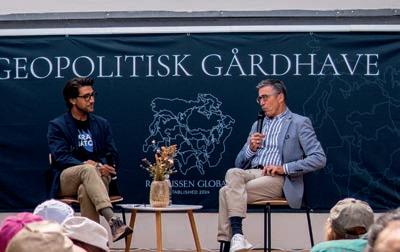


• What? A boutique consulting firm working with democratic governments and corporate clients to get their message across through high-stakes political campaigns. We help clients navigate a complex world on issues that matter, such as the green transition, sustainability in space, Ukraine’s security and reconstruction, and European strategic autonomy.
• Who? We take 2 interns per semester in Copenhagen and Brussels, who work alongside our team on exciting projects for democratic governments and corporate clients, doing political research and analysis, working closely with senior staff across the Copenhagen, Brussels and Kyiv offices.
• Where? In Copenhagen or Brussels.
KEEP AN EYE OUT on Rasmussen Global’s website, LinkedIn, and on IBP Facebook groups for our next internship application round!
rasmussenglobal.com




• What? A non-profit organization dedicated to the advancement of democracy and free markets around the globe. We work on the global challenge of democratic decline, actively strengthening democracies to revitalize and advance democracy worldwide. Our mission is to foster a global alliance dedicated to peace, responding to the urgent need for creative solutions in a rapidly changing world.
• Who? We take 2 interns per semester who work alongside a team on exciting projects and initiatives such as the Democracy Tech Fellowship, The Transatlantic Commission on Election Integrity, and our annual Copenhagen Democracy summit.
• Where? In Copenhagen.
KEEP AN EYE OUT on the Alliance of Democracies’ website, LinkedIn, and on IBP Facebook groups for our next internship application round!
allianceofdemocracies.org




As IBP students, we all have diverse interests and backgrounds, making it challenging to define a ’typical’ IBP student. However, one common trait among us is the desire to have a student job. The reasons for this may vary from financial needs to wanting to enhance our CVs, gain new skills, or something else entirely. With this in mind, IBP Communications aims to demystify the process of finding and securing a student job. In this article, we will showcase three IBP students with vastly different jobs, in the hopes of inspiring and guiding you in your job-seeking journey.
BY CLARA ROHDE
I’m employed at the Mercedes-Benz Headquarters in Denmark, but Denmark shares their Mercedes organization with Sweden. Therefore, I work for Mercedes-Benz Denmark-Sweden, with offices in both Copenhagen and Malmö. I’ve been with the company since November, although I was officially hired in October.
I am a Student Employee in the Danish pricing and business analysis department.
Typically, I compile sales numbers for management. Additionally, I assist with ad hoc tasks, especially when challenges arise during car registrations in Denmark due to the unique Danish system. Moreover, I have the flexibility to help with tasks across the headquarters and I don’t belong to a specific department.
I enjoy the flexibility and freedom my job offers in particular. I can work at my convenience and nearly as much as I want, allowing me to align my job with my studies. Moreover, I find the topics I work on to be highly relevant to IBP, making each assigned task meaningful.
Probably, the freedom is challenging. Since I’m not instructed on what to do and since I influence the nature of my tasks independently, identifying the most relevant tasks can be challenging. My boss is often too busy to provide direct guidance, so there’s an element of learning by doing, which, while enjoyable, can also be demanding.
HOW DID YOU GET THIS JOB?
Having previously interned at the Mercedes-Benz Global HQ in Stuttgart, Germany, from 2021-2022, I had some “legitimacy”. However, I just reached out to a Danish HQ employee on LinkedIn, asking about opportunities for a student job for someone with prior HQ experience. Fortunately, they were in the process of hiring a student employee but had not yet started the official process. Shortly after, I was invited for an interview and was hired on the same day of the interview.
WHAT ADVICE WOULD YOU GIVE TO SOMEONE WHO MAY WANT TO FIND A SIMILAR JOB IN THE FUTURE?
Focus on building your network, being proactive, and being as much as possible on LinkedIn. Especially in the early stages of your studies, try to steer past the official hiring process to avoid being lost among numerous other applications. Try to outcompete the competition by getting someone to recommend you personally or being so proactive that they haven’t even started the official hiring process yet.
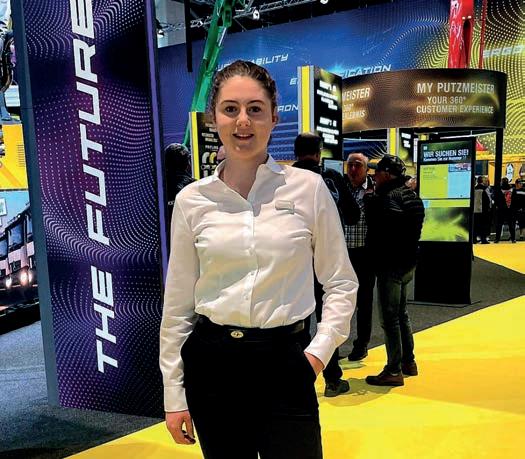
I work at Hoyer Motors in the German sales office located in Munich, which is why I currently work remotely. Hoyer Motors is a large B2B supplier of electric motors mainly for marine and industry applications. I have been with the company for a year and four months, of which I have worked 12 months in the office in Munich.
While working onsite in Munich my title was sales trainee, however, I am now a student assistant.
My primary responsibilities in this job include but are not limited to:
• International project handling => the entire process from offer creation to delivery, including collaborating with the technical, purchase, warehouse, shipping, and finance departments.
• Customer service => helping customers find the best technical solutions to fit their applications as well as after-delivery services.
• Claim handling => discussing next steps with the customer, creation of return orders & non-conformances as well as supporting the quality department.
• System administration => updating and streamlining
Because I work part-time, many of my responsibilities have now shifted to a more supportive role,
where I help minimize the workload on my colleagues. As I have worked for the company full-time for a year, I have broad technical, system, and customer knowledge that I use in all my work tasks.
I really enjoy the aspect of problem-solving and interacting with customers and colleagues from around the world. Understanding business and the effect of politics on a wide array of issues regarding product requirements and regulations is something that absolutely creates applicability between Hoyer and IBP. Furthermore, having a great relationship with colleagues across departments is very important, and something I am truly appreciative of.
The most challenging aspect of my job is understanding a wide range of technical requirements and solutions. While working full-time I have had a steep learning curve, but the market and regulations are ever-changing, so staying updated with the newest requirements is extremely important. As we all know not following regulations can have a massive impact on companies in all industries, but especially when working with electrical products where safety is a top priority.
HOW DID YOU GET THIS JOB?
I was able to get this job as part of the Danish education program, PIU, that allows high school graduates to get professional work experience abroad while studying remotely. During my first year at Hoyer, I studied business education with a specialization in sales.
WHAT ADVICE WOULD YOU GIVE SOMEONE WHO MAY WANT TO FIND A SIMILAR JOB IN THE FUTURE?
I would definitely advise other IBP’ers to look beyond the “classic” student jobs and try out different career paths - you might be surprised at the opportunities and interest you spark. When searching for a student job it is really important to understand specifically what you are bringing to the table relative to other candidates and make sure your future employer knows it too!

I’ve been working part-time as a model for almost a year. I am signed with a Polish modelling agency AS Management, and a Korean agency DOBE Management, but am currently also looking for a representative in Denmark.
Nothing surprising here, a model :)
As a model, I have to obviously take care of myself, my physical form, skin, hair, and everything that comes to mind. But most importantly I have to stick to schedules, be punctual, creative, kind, positive communicative, and extremely patient with a lot of aspects of the job. I have to ensure that my presence on the set is pleasant and that I don’t make anyone else’s job harder than it already is :)
Definitely, the creative part is the one I enjoy the most. But also cooperating with talented and open-minded people is a wonderful experience in itself. As a model, I get to spend hours with photographers, stylists,
and makeup artists. Those are often some truly amazing souls; meeting them is a great experience from which I learn a lot every single time.
Patience is something that I consider the most challenging part of the job. This aspect appears in many forms. It applies to being rejected repeatedly, to waiting for hours on castings for your 5 minutes, to getting your pay for the job (which often takes months). Building a career in this business is not an easy thing, it takes time and dedication, as well as some tough decisions, patience, and persistence.
I got “scouted” on a street in Warsaw, Poland by 2 separate scouts (people, who look for potential models). I didn’t want to get signed by the first agency that was interested in me. I then decided to do my research, found an agency that had the potential to be the best fit for me, and signed up for a casting. They liked me and here I am, very content with my choices.
Do your research. That applies to searching for an agency, but also knowing your rights. Sounds basic but you have to know the red flags to notice them in your contracts. And above all, believe in yourself. Also sounds basic and a little cheesy, but when I got scouted, I didn’t have “the measurements”, I am not tall enough for most markets and apparently quite old for someone who’s starting. But if you are truly convinced, that you have the face, the talent, and most importantly YOU ENJOY being in front of the camera and working with people, you’ll find a way. The industry is changing rapidly now and there’s room for almost everyone who is hardworking, dedicated, and persistent enough. So don’t get discouraged. Look for options :)
“What do you want to be when you grow old?”, a question with a thousand answers. I wanted to be an astronaut, a princess, or maybe even a rock star. My whole life was ahead of me, and the world was bright and filled with endless possibilities.The sky was always blue, puddles were meant to be splashed, and the grass was always the greenest right at my feet. To think back to the boundless dreams of childhood, where our imaginations painted a world of endless possibilities. We saw ourselves as future leaders, change-makers, and the architects of a brighter tomorrow. This idealism was not just fanciful thinking; it was the seed of our potential. But as we grow and delve into the realms of a capitalistic society with deceitful politicians, a question arises: Does the harsh light of reality extinguish the flame of childhood hope?
BY TATJANA THORUPAs children, we believe in the triumph of the good, in heroes who always save the day, and in a just world where fairness prevails. This isn’t naivety; it’s a beautiful fraction of a better world. A world full of hope. It’s the danger of believing that one person can make a difference and that every problem has a solution. Believing is only for the bravest, and hope is for the untouchable.
“What do you want to be when you grow old?”, a question with no answer. The sky is always grey, puddles are always avoided, and the grass is always greener on the other side – if there is even grass at all. I do not know when such hope disappeared. I do not know when my eyes changed from light blue to gray, but I do know that hope disappeared; it was the awakening to reality.
We now embrace the beauty of knowledge. University is our grip into adulthood, yet I wonder if I am simply holding on or actually enjoying the ride. Studying politics and international relations is a blessing and a curse. We encounter a world far more complex and less forgiving than our younger selves imagined. We learn about the intricacies of power, the nuances of diplomacy, and the often-unseen forces shaping global events. The black-and-white childhood narrative morphs into a spectrum of grays, and boom, the realization hits: the world is not always fair, and good doesn’t always prevail. But how can we color our paintings of the future when all we have is grey clay?
The more I learn about political thinking, economic disparities, and historical conflicts, the more daunting the world’s challenges appear. I stumbled upon a campaign called: “Did you remember to get frightened today?” and yes, indeed, I did. The news cycle adds to our lost hopes, bombarding us with stories of corruption, injustice, and environmental disasters. It’s easy to feel like a drop in the ocean - hopeless and powerless in the face of such overwhelming realities. Here, my childhood dreams look silly, and yet I miss splashing in the puddles on a rainy Sunday. I miss feeling like I could do everything, concur the evil, and take away people’s pain. Now it all seems, well, hopeless.
The real question is, who decided that we couldn’t keep our childish faith? Who decided that we should let go of our childhood sparkle in a world full of darkness? Some may emphasize that clinging to naive, childish hopes blinds us from the realities of power and pragmatism needed in effective politics. But I think that they couldn’t be more wrong. Growing up is not about seeing the world as it is, forgetting what the sky looks like without the clouds, and always wearing an umbrella when it rains. We owe the world, the people, and the next generation to keep some of that childish hope. Some advocate that we are to see the world as it is, not as we wish it to be. And while I do see some sense to this, I think that hope is exactly what the world of politics desperately needs.
To speak up when something is not okay, that is hope. To be aware of reality and not accept it for its harshness and unfairness, that is hope. Children, in their play and interaction, do not see the barriers that adults do. Children collaborate, don’t discriminate, and share with openness. Something that can be forgotten in adulthood. In international politics, especially in climate negotiations, a more open and collaborative approach, free from geopolitical and economic competition, leads to more effective global solutions. As students of politics and economics, it is not our job to grow old as fast as we can and discard our childhood dreams. Our job is to adapt such childish hope to our understanding of the world. I have spent a lot of time feeling hopeless. My Instagram flashes with genocide and climate disasters. My phone bings and a new article stating a politician’s selfish pursuit of interest pops up on my screen. Hope is not ignorance and naivety; it’s a conscious choice to believe in the potential for change. As human beings, we need hope. We, as students, have the greatest platform to have and share hope. The great thing is, we are not exactly adults, and we are not exactly children –so what are we? We are young people who have the opportunity to use hope to keep pushing the boundaries of what is achievable.
“So, what do you want to be when you grow older?”, a question with one answer: hopeful.


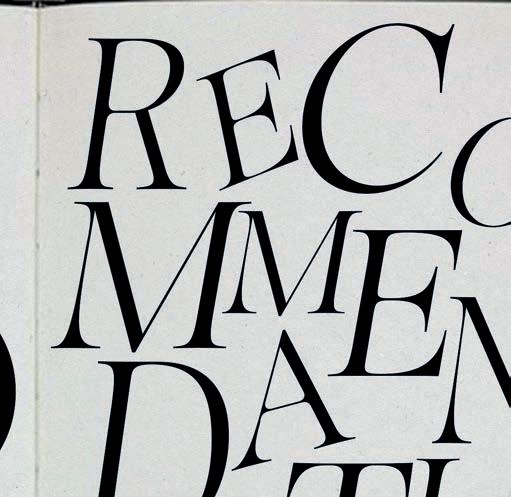


“I looked up at the mass of signs and stars in the night sky and laid myself open for the first time to the benign indifference of the world.”
“The Stranger” by the French writer and philosopher, Albert Camus, is often regarded as a classic of existentialist literature. The novel captivates readers with its profound exploration of the meaning of life. The novel follows Meursault, a deeply apathetic and emotionless man living an ordinary life in Algeria until he gets entangled in a crime and contemplates the sense of life in a world that appears so indifferent.
“My mother died today. Or maybe yesterday, I don’t know” is the opening line of the novel. Meursault is an interesting protagonist, as it is hard to feel empathetic towards him. He’s detached and his actions as well as reactions not only challenge societal norms but also could be considered immoral. To the people surrounding him, he seems rude and inconsiderate. He is indifferent to everything and everyone in life. However, I found it liberating, the way he distanced himself from other people’s opinions. Even though he was guilty and showed no sign of remorse, I found myself rooting for him in the end.
The novel is short and to the point. It is not unnecessarily poetic, which reflects the protagonist’s blunt way of thinking. Through the character, Camus displayed his philosophy of absurdism. Meursault doesn’t believe in much and cares about even less. I thoroughly appreciated Camus’ writing style and found his thoughts, along with his perspective on the world, to be intriguing. I also found some of his ideas rather comforting. One of my favorite quotes from the novel is “after a while you could get used to anything.”
”The Stranger” by Albert Camus is a thought-provoking and philosophical novel that delves into the complexities of human existence. If you have been wanting to pick up a classic, I would strongly recommend “The Stranger”.




















“A Thousand Splendid Suns” by Khaled Hosseini is a powerful and emotionally charged novel that offers a compelling glimpse into the lives of two Afghan women, Mariam and Laila, whose stories intertwine as they both made to marry an old, bitter man in Kabul. Despite a nearly two-decade age difference, the two women find consolation in each other and foster a bond as strong as one between mother and daughter, which helps them survive the abuse hey endure from their husband as well as the realities of the Taliban rule in Afghanistan. Hosseini crafts a narrative that is both heart-wrenching and hopeful. As the novel unfolds in a war-torn Afghanistan, it provides a poignant portrayal of the struggles and the sacrifices endured by its female protagonists with few to no rights. The vivid descriptions and evocative prose draw readers into the harsh realities faced by Mariam and Laila.
“A Thousand Splendid Suns” is not only an exploration of the socio-political situation in Afghanistan but also a story of profound resilience of women and the human spirit overall. It’s a story about love, friendship, sacrifice, endurance, hope and redemption. As Mariam and Laila navigate their tragic lives, the novel becomes a testament to the unbreakable bonds that can form in the face of adversity.
I found the author’s storytelling immersive as he tackled difficult subjects with sensitivity and insight, shedding light on the often-overlooked experiences of women around the world, especially in conflict zones. “A Thousand Splendid Suns” is a masterfully written novel that educates readers about the harsh realities of life in war-stricken Afghanistan and under Taliban’s rule as a woman. It leaves an unforgettable impression, reminding the readers of the strength that can emerge from even the darkest of human experiences.
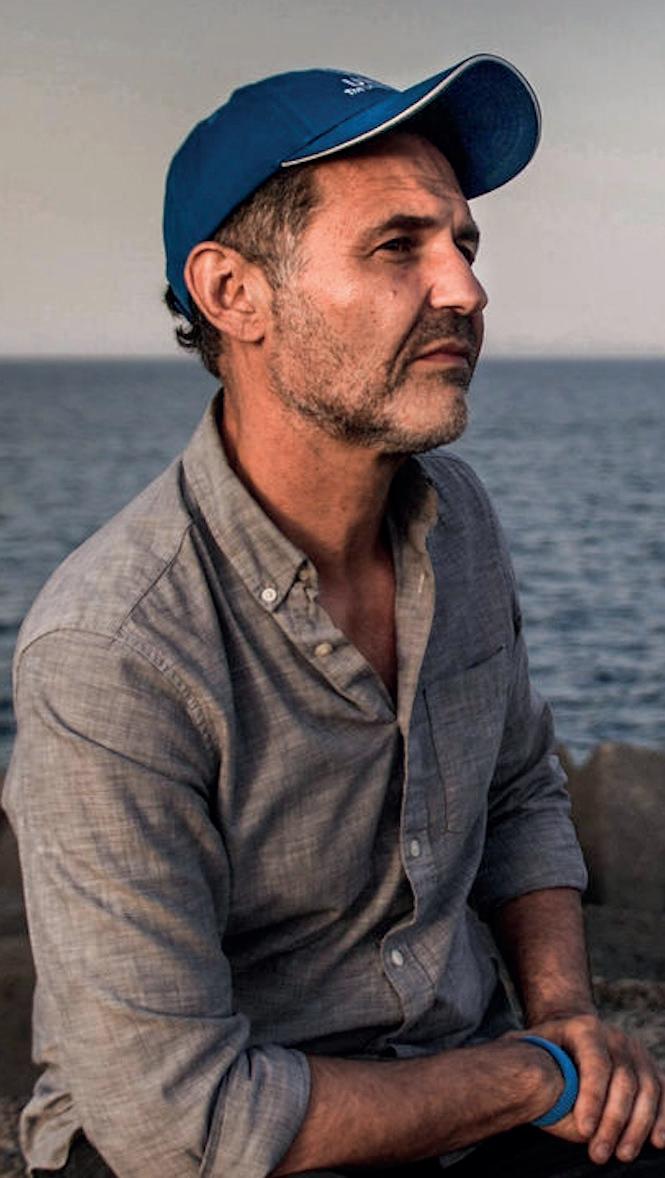















 BY TERESA OWCZARZAK
BY TERESA OWCZARZAK

The IBP Union recently sat down with Professor Megan Tobias Neely, who teaches Management & Organisation. Taking a step back from the individual theories and concepts, we wanted to better understand what constitutes the core of the subject. How does it tie into the broader IBP programme? And, tying into a discussion of her book, what analytical tools can it provide us to better understand those everyday-phenomena and organisations that structure our life?
This was the first year Management & Organisation was part of the IBP curriculum. Despite not being obvious from the outset, what we have is a course that’s foundationally tied into the rest of the IBP programme. Those central themes in IBP are mirrored, but through a whole other lens, another set of analytical tools than those we encounter during the first semester. It’s the same topics we’re already familiar with. Like Political Science, like Macroeconomics, it delves into the complex world of political economy. It’s still those discussions one expected of globalisation, of the financialisation of the economy. But it’s through another lens than we’re used to.
“The idea with it was to provide really a comprehensive scope of what has been done in organisational theory. It’s meant to give you just a really solid foundation, and the expectation with those kind of dense textbooks isn’t that you memorise every detail.” The intention is not to exactly memorise the entire textbook. And already here the focus is different from what we’re used to: the analytical tools one ought derive is not the same as Microeconomics where you need to solve exercises in one exact way, remember exactly a specific model for a monopoly market structure. “Rather,” explains Megan, the purpose is “that you kind of have it in your psyche and in your intellectual toolkit, so that later you might go back to it or you might kind of draw from it in unexpected ways.“ We’re supposed to draw on the concepts in another way in our future careers.
“As you navigate real world situations, it comes to life more. It shows how we’re constantly testing what we theorise and use concepts to explain with what we experience, because if it doesn’t match those real-world
experiences and those organisations we navigate, then there’s no point of it.” As students we’re pushed further than the usual logic we’re usually exposed to, the one that dominated first-semester Political Science and Microeconomics, where the elegant assumptions we make, render our problems easily solvable with a single line of high-school calculus. Management & Organisation is a departure from the neat calculus of Microeconomics, and we’re instead forced to think in terms of organisations and structures. “Whether they’re in the form of organisations, institutions, or in cultural norms, they shape what’s possible for us and shape what we understand to be choices.” We’re departing from the necessarily individual unit of analysis, and looking at organisations, broader structures.
“Organisation studies more generally, and the institutional and neo-institutional theory that I heavily emphasise during the course, really pushes us to think about how people aren’t just operating as individual rational actors, like a classical economic theory says.” “The fact that [organisational studies] are not just treating people as individuals, but thinking about them and what they do as indicative of the context they’re in and the structures that influence their choices and paths, that makes for a much richer analysis of what’s going on in workplaces and what could be done to improve them.”
It’s understanding this unique style of thinking that we should have in mind when reading Megan’s most recent book, Hedged Out. “I wanted to study that puzzle,” Megan tells us, “how does that happen where their workplace conditions them where they don’t realise some of the negative consequences that can happen?”






Megan’s most recent book, Hedged Out, is such an example of applying the analytical tools to better understand the construction and maintenance of inequality in the financial sector. It’s an investigation into how the wealthy hedge their abundance of privileges within hedge funds.
“What really piqued my intellectual curiosity was, you know, the fact that I worked with all these people who thought of their work as really doing good for society. They invested the pension funds of everyday workers,” This is the puzzle she’s trying to solve, having herself worked at one of the big, hedge funds, BlackRock. “I worked at BlackRock, I was a researcher there starting in 2007 until 2010,” Megan tells us. ”I was hired just before, on the eve of the 2008 financial crisis. I witnessed what happened during that crisis from within the financial sector itself, people were so adversely impacted in terms of losing values of their homes, losing their homes altogether. This was directly, connected to these financial investors.”
Hedged Out describes the advent of a new generation of the rich, those whose wealth is income-based rather than the leisure class of decades past wholly justifying itself through an appeal to meritocratic. What’s revealed, however, is that it but constitutes a new financial elite that still builds on a system of patronage as olden days, although one very different from before. It is instead a return to Weberian patrimonial system, building on personal connections and trust as a response to the chronic ins curity, and the most valuable asset becomes social capital. Meanwhile, those ideas of “fit” during the hiring process is a subtle avenue for the homophily that permeates these organisations. And as formal hierarchies dissipate in these lean, social hierarchies are likely to take its place.
Narrating what Megan thought what was most surprising during her ethnography was that constantly recurring theme of patrimonialism that would become a key part of the book.
“In my interviews during my fieldwork, people kept describing these hedge funds as like families or tribes or fraternities and how these men who led them were like kings or chieftains, and I kind of thought, well, why in these ‘modern’ financial firms are they using this language that kind of reminds us of, you know, like feudal communities and economies? And I found that really surprising, like how did they reconcile that with this supposedly modern workplace?”
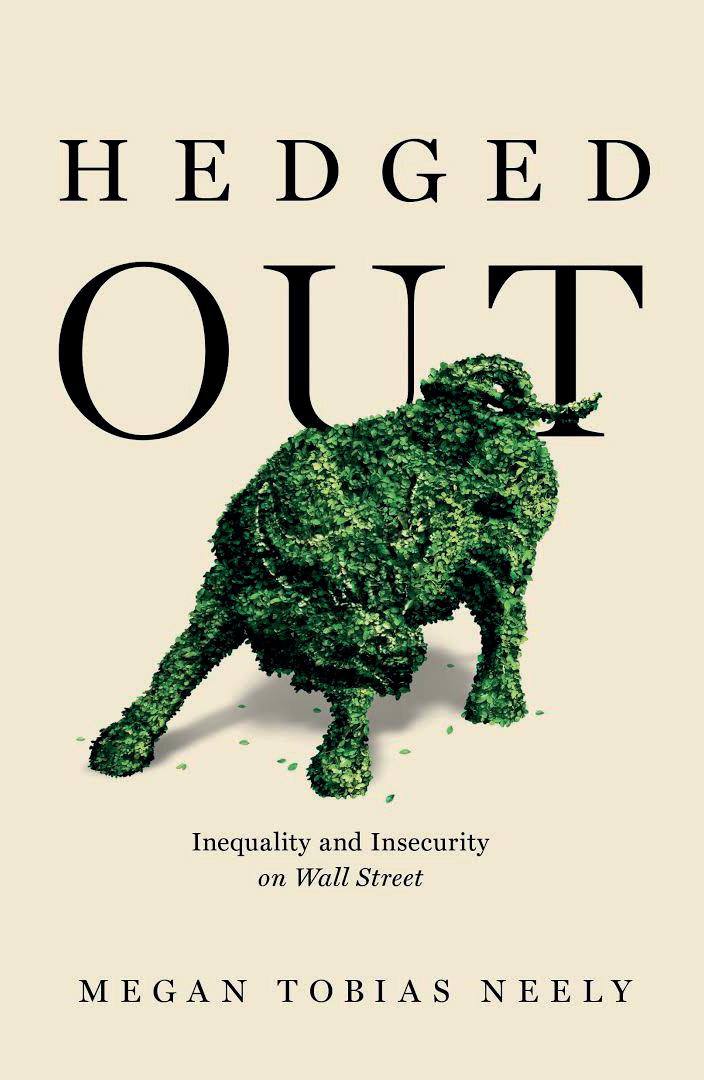
“What really piqued my intellectual curiosity was, you know, the fact that I worked with all these people who thought of their work as really doing good for society.”
This was what would set the general direction of the book. “One of the key tenets with research is when a puzzle emerges, something surprising, keep focusing on that and figure out how to explain it. Because usually that’s at the core of what the problem is at hand.”
Reading the book, it nearly feels like a culmination of the the course. It ties into the course literature one spent a semester reading, and it’s not just the frequent citations to it. The methods and concepts are recognisable from the textbook and the exercise classes, all while still focusing on that recurring topic of the financialisation of the economy. Most powerfully, however, one can suddenly recognise those papers, those swaths of ideas cited in those citation brackets when they hitherto all too often appeared like oceans of unknowable depths.
Management & Organisation also has clear links to another 2nd semester course, Research Design and Qualitative Methods. Many of the texts in class are based on ethnographies, and Megan’s work in Hedged Out is no different.
This mode of investigation is uniquely situated for organisational studies. “Because people are so wrapped up in their everyday work,” Megan tells us “they don’t have the chance to step back and recognise those forces.” Ethnographies allow for that analytical disposition to the otherwise quotidian.
But ethnographies are just as useful for guiding research in a manner quantitative studies aren’t. “But I also think [ethnography] captivates people’s intellectual kind of curiosity in an important way that other kinds of research isn’t quite as effective. Just at this stage, I also do quantitative research, and I think that’s really effective in other avenues.”
The research method ties into the stylistic element of how the book is written too, whose prose is so wonderfully engaging while maintaining an astutely academic rigour. “Nobody should feel like they can’t engage in an academic book. And I don’t think you have to compromise anything theoretically to do that. This is one of the big tenets of ethnography is that we show rather than tell. And in an academic book, you have to do some telling theoretically. But my goal was really to show the theories.”
As one of those mandates that’s incredibly difficult to sincerely understand when one only reads it in a textbook, Ethnography also requires one to constantly be on one’s toes. The process requires a lot of foreground research, but also being prepared to changing how one goes about it in the middle of it. “You go in and you read up on all qualitative methods, or all the studies that are similar to what you’re doing, and you read those methodological appendices in close detail. For example, Karen Ho’s work was a big influence on how I approached this. And then you take those and you go out into the field and you think they might work for you. But then you learn through trial and error what works and what doesn’t for you as a researcher.”
One example Megan cites of this is how it was best to present herself in these settings, when conducting the interviews. One of the biggest challenges with ethnographies are to gain trust, and while she thought it would be easiest to gain it leveraging her own background in the hedge-fund industry, she quickly discovered that wasn’t effective.
“And so what I found is actually the more I kind of just foregrounded me being a scholar, the more comfortable they felt talking with me, sharing, being candid.”
A recurring theme of this interview so far has been what we learn reaches far beyond the lecture hall and academic confines. It’s no different with how we ought to think of the qualitative methods we learn.
“All these kinds of tools can be used in so many other settings just to think about, you know, talking with people, building your own network, making connections, observing workplaces that you might work in and seeing what works and what doesn’t.”
Speaking of her current research, Megan tells us, “we know there’s been all this research that AI algorithms are biased.” Her aim is to uncover the practices behind the momentous force that is Generative AI, currently laden with so many subtle biases, but whose emergence is still a puzzle.
“The goal will be to join them in their everyday work and see how their research projects are carried out and how technologies are developed and presented and disseminated and to have an understanding on how the everyday work that’s done in an AI high-tech company impacts society; to see what goes on in the everyday work that leads them to create products that have these social biases that are reflective of social inequality.”
It’s in trying to understand the mechanisms behind these sorts of issues, that a course like Management & Organisation prepares us in a way none other in our study programme does.
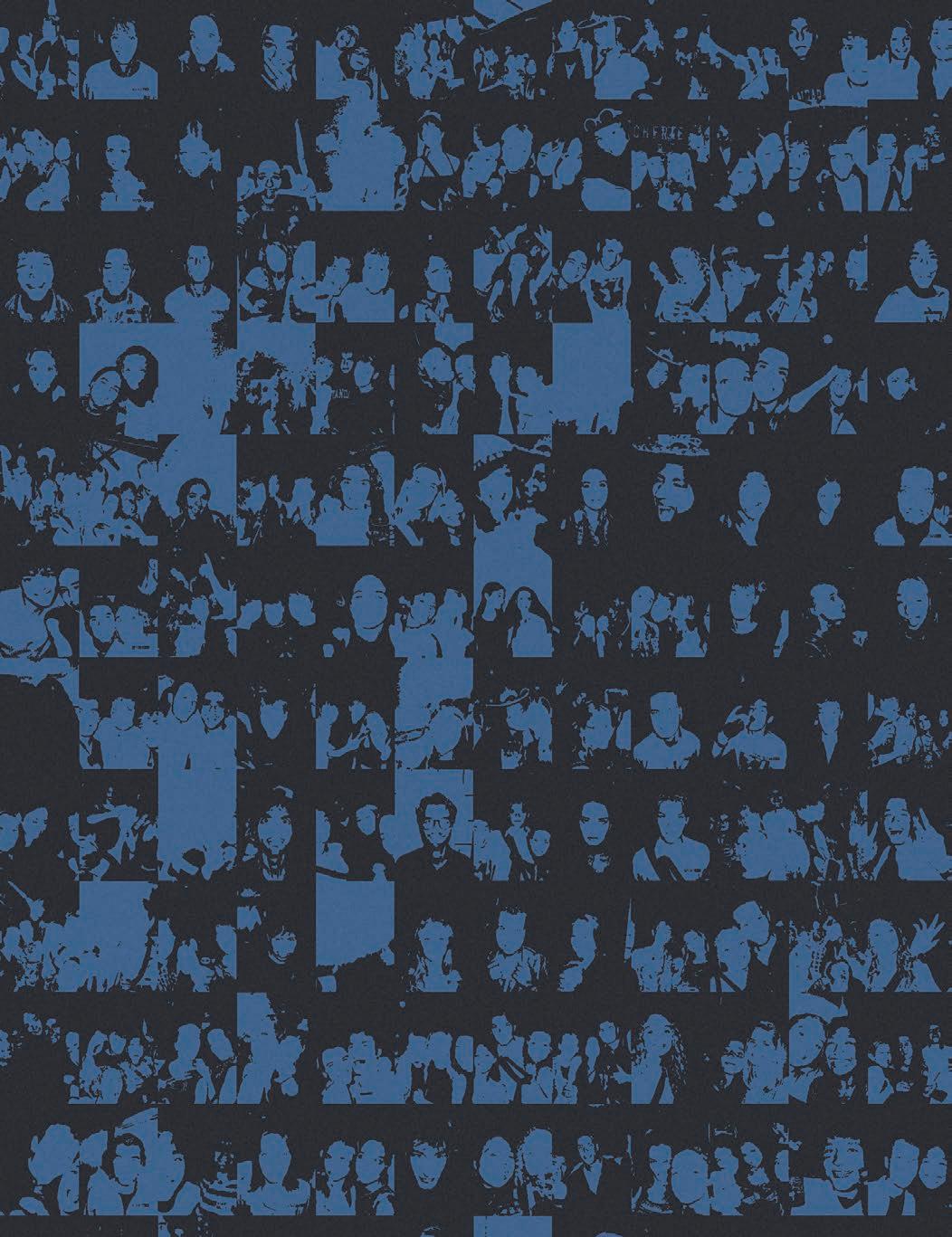
SEPTEMBER 21-25 Introweek
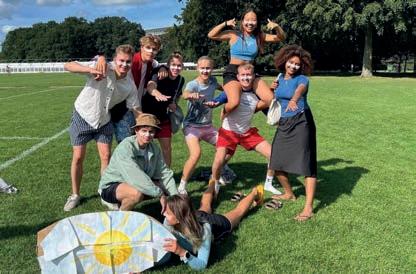

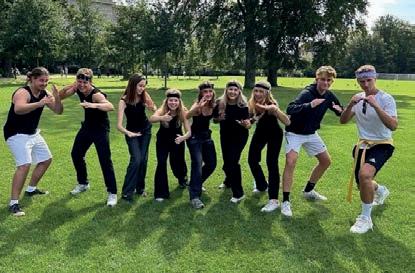
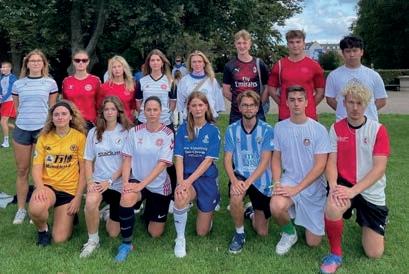

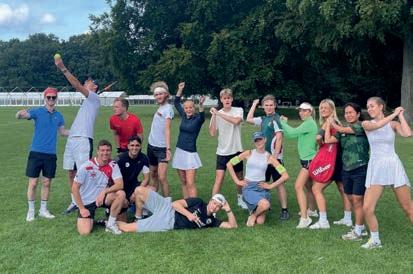

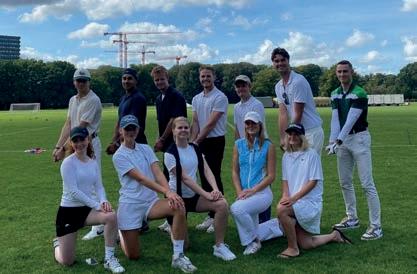
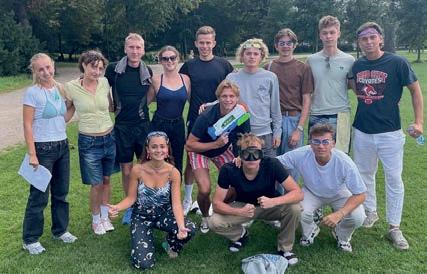
A full-day party to properly kick off the new school year. Here new and old CBS students gathered at Solbjerg, with lots of sunshine and live music from artists like Lord Siva. After the concert, we IBP students gathered at KB3. A fun social start to the semester!

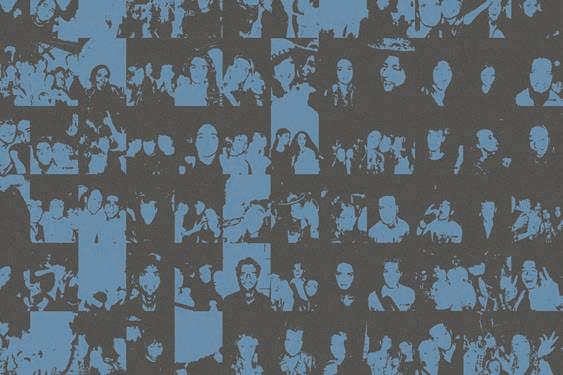
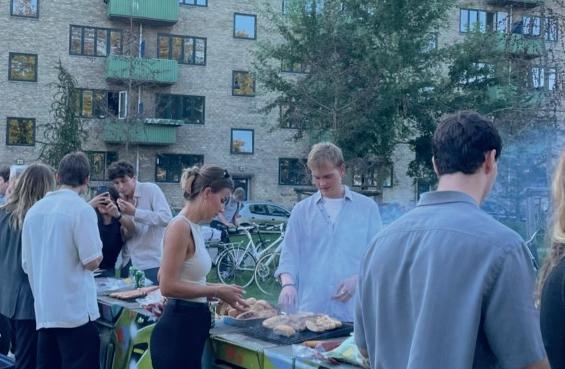
As the first IBP social event of the semester, we all met up for a BBQ at Nørrebro Parken. The conditions could not have been better, with warm weather and pure sunshine. Here dedicated second years had cooked and prepared food, and we all had a good time bonding and socializing.
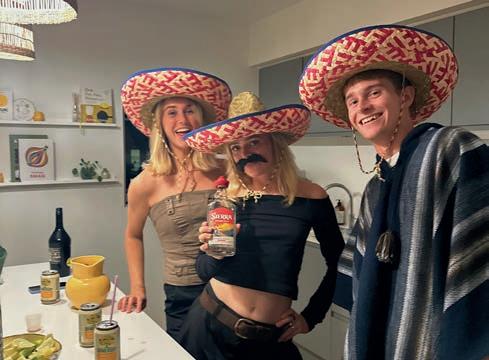

After a couple of weeks of lectures, it was time for the first Friday bar of the semester. The theme was “Beerpong Tournament”, with multiple themes competing. We gathered at Haven for the tournament to unfold. Still feeling like summer, this was a Friday bar for the memory book.
An early highlight of the semester was Tour the Chambre. Here both new and old IBPers got to bond in fun and exciting settings. Not lacking in creativity, the hosts had themes ranging from the Wild West and Mexican Fiesta to the true spirit of Harry Potter and Barbie. The guests also had a fun time with three different stops during the evening. To end it off, we all gathered at KB3 for a fun rest of the night.
As the fall season approached, we had a cozy movie night at Dalgas. Here many came in PJs and got ready for a proper study break. IBP social had arranged sandwiches for us all to mingle before, and we then had fun watching Grown Ups. A cozy evening to remember!

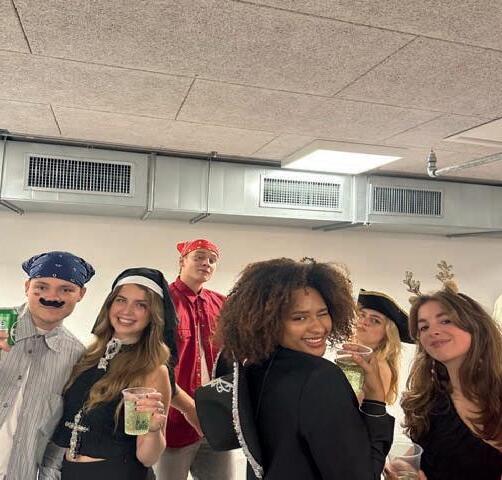


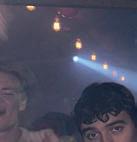


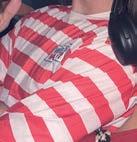

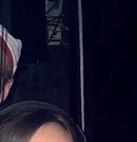
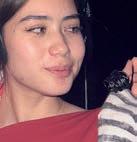




Having the first exams done, we could finally take a break with a proper Halloween party. Here costumes ranged from Willy Wonka to Mice and Find Willy. To make the night even more fun, we all gathered at La Boucherie for a memory-worthy evening.

In true IBP tradition, we took a break before exam season to we gather for a cozy Christmas dinner. Here dedicated hosts cooked and prepared for their fellow students, to enjoy Christmas-themed dinner and games together. Some even got a visit from Santa Claus! The night ended up at Chateau Motel, where the festive Christmas spirit continued.



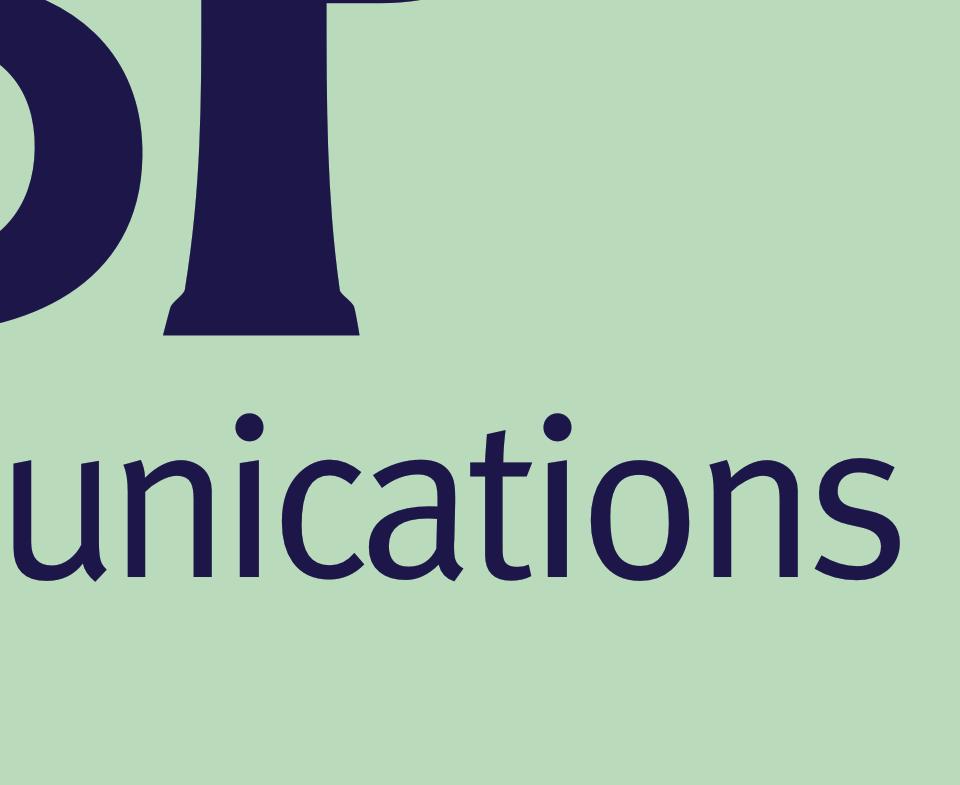
Eline Kiirdal Ludvigsen and Leila Osvald
Eline Kiirdal Ludvigsen, Agnes Weber Cortzen, Clara Rohde, David Thomassen, Helen Hummel, Jojo Veit, Oscar Julius Adserballe, Stine Schou Landmark, Tatjana Thorup and Teresa Owczarzak
Leila Osvald
CONTRIBUTORS AND INTERVIEWEES
Laurits Schaumburg-Müller, Amalie Holst, Lærke Haxholm, Frederik Pommer, Ida Lind, David Lincoln, Leonard Seabrooke, Victor Lenk-Hansen, Kasper Berggren, Elina Løken-Dahl, Casper Sylvest Helledi, Gustav Matthäi Halkjær, Kirsten Langkilde, Victor Fuhrmann Desimpelaere, Anna Raadshøj, Nikolai Tange Kristensen, Mie Jensen, Mery Szwed and Megan Tobias Neely
THANK YOU TO RASMUSSEN GLOBAL FOR MAKING PRINTING OF THIS YEAR’S EDITION OF THE IBP MAGAZINE POSSIBLE!



